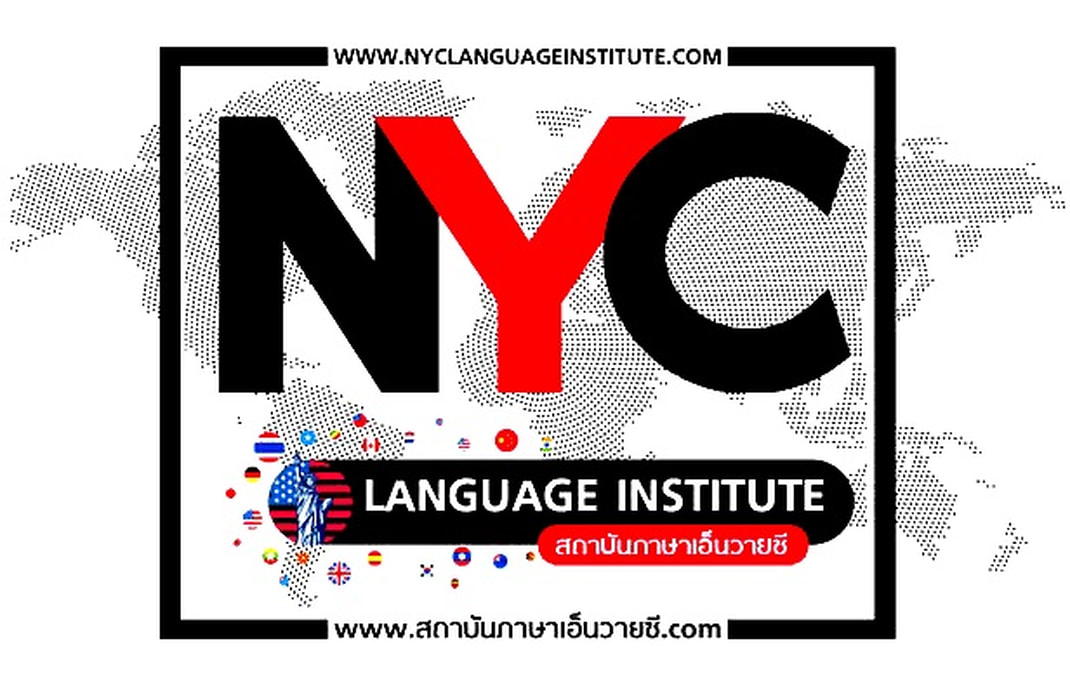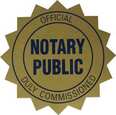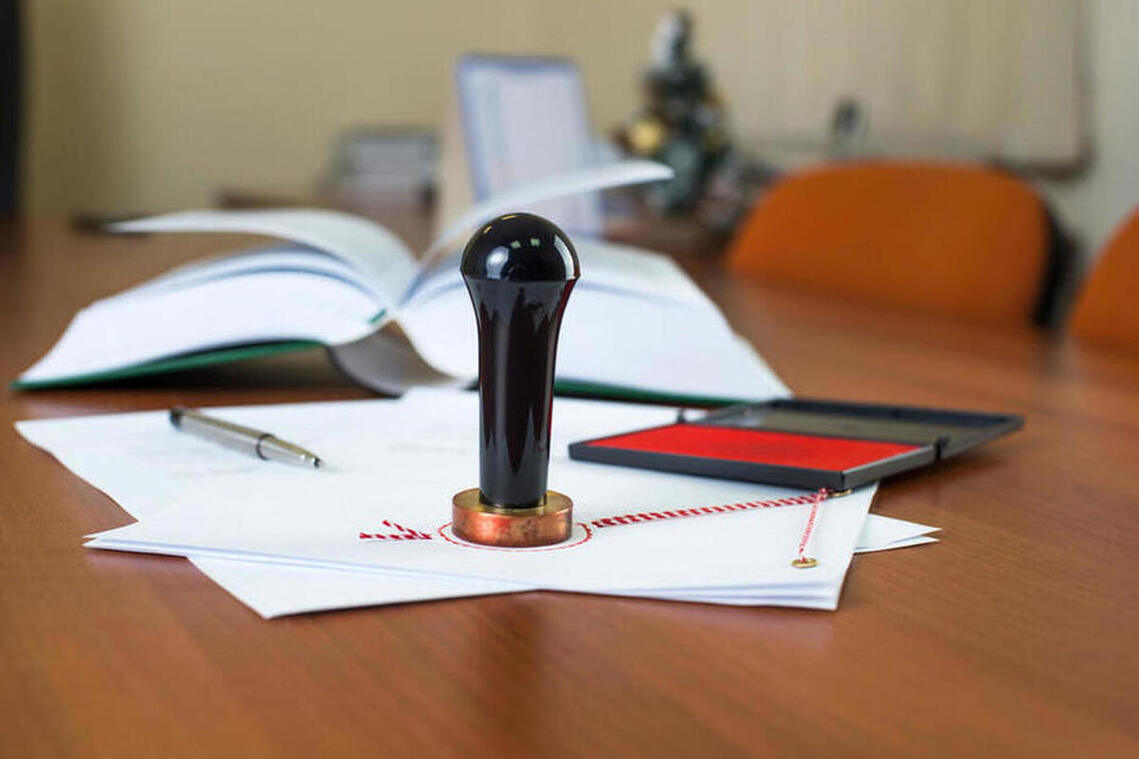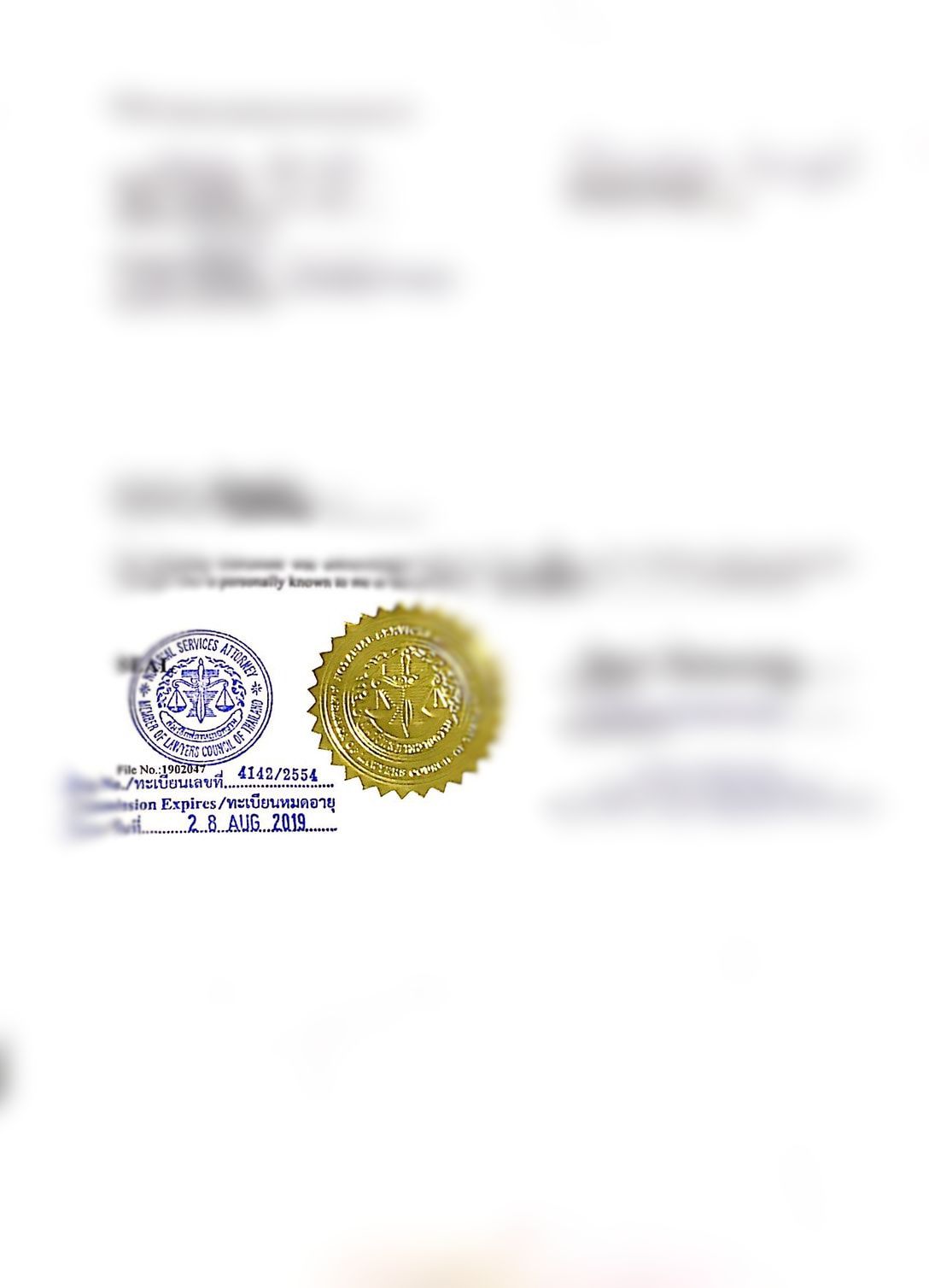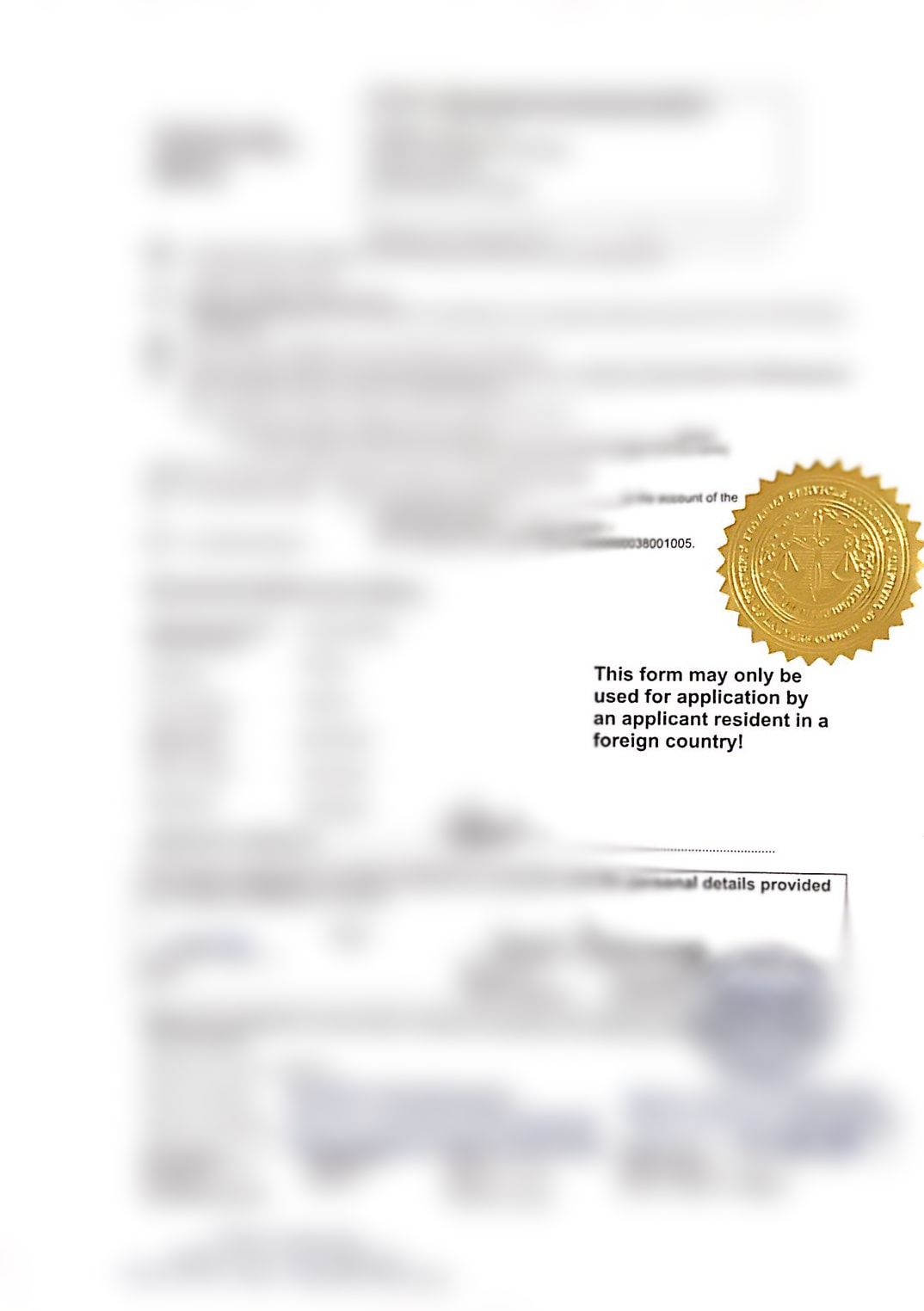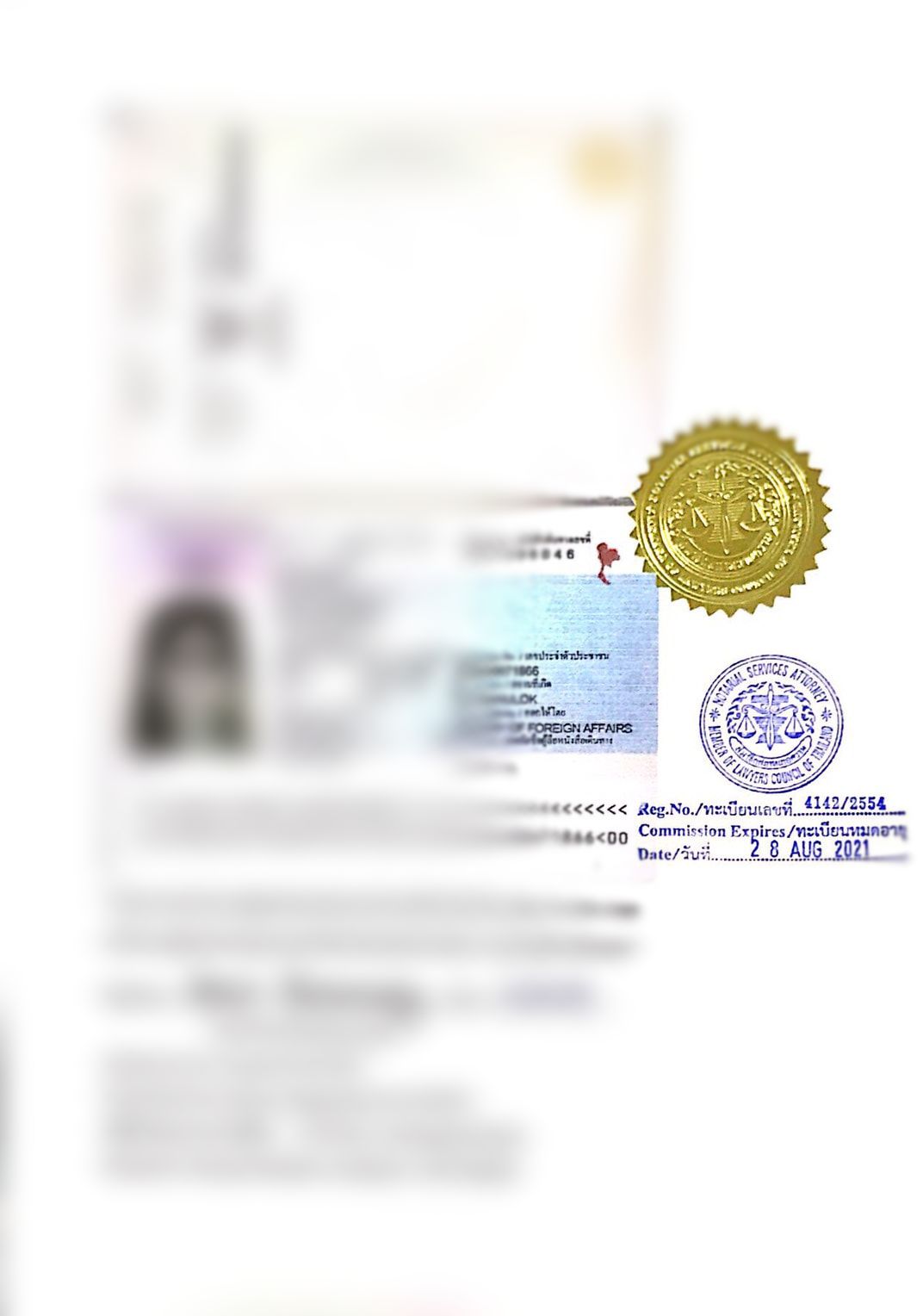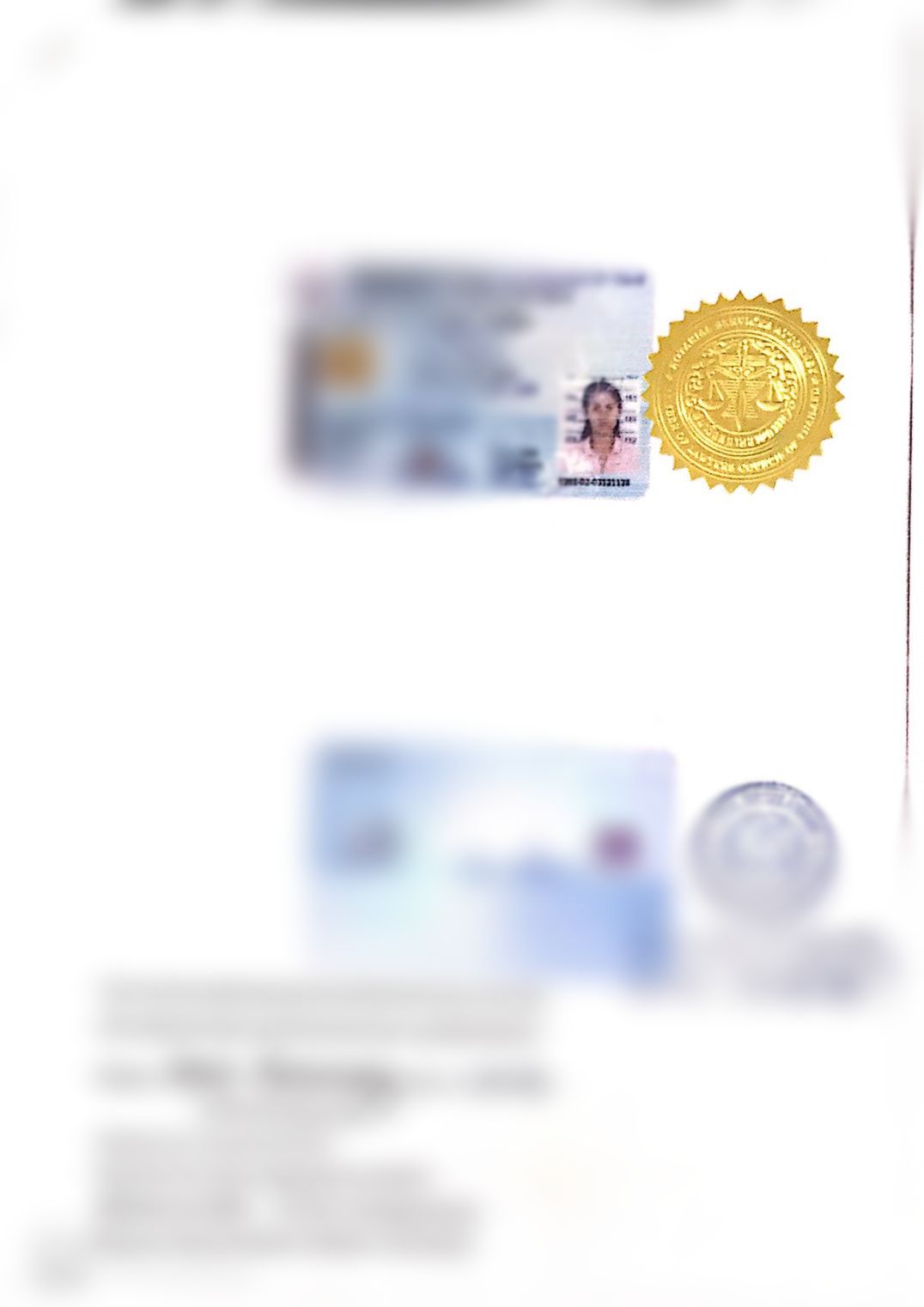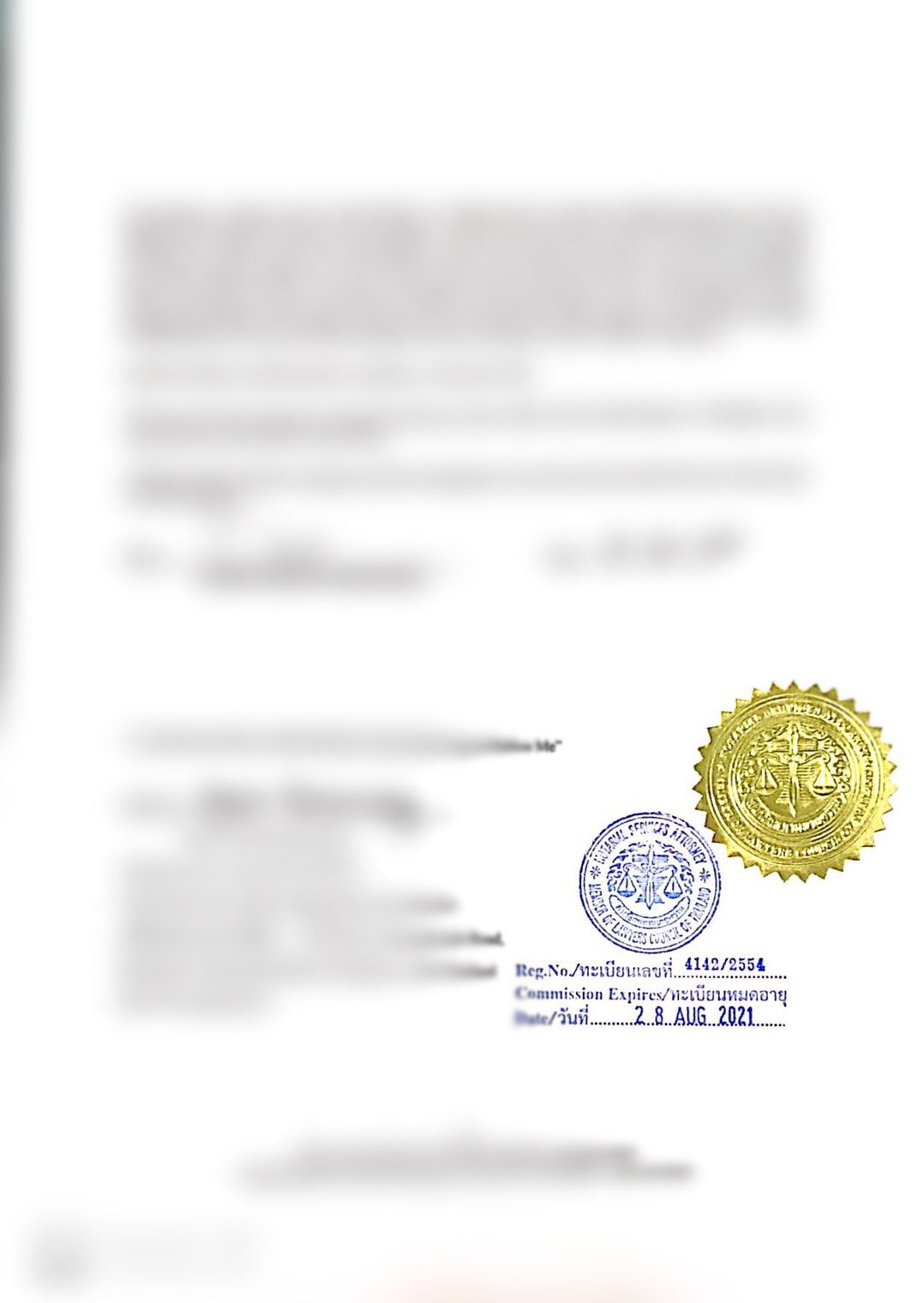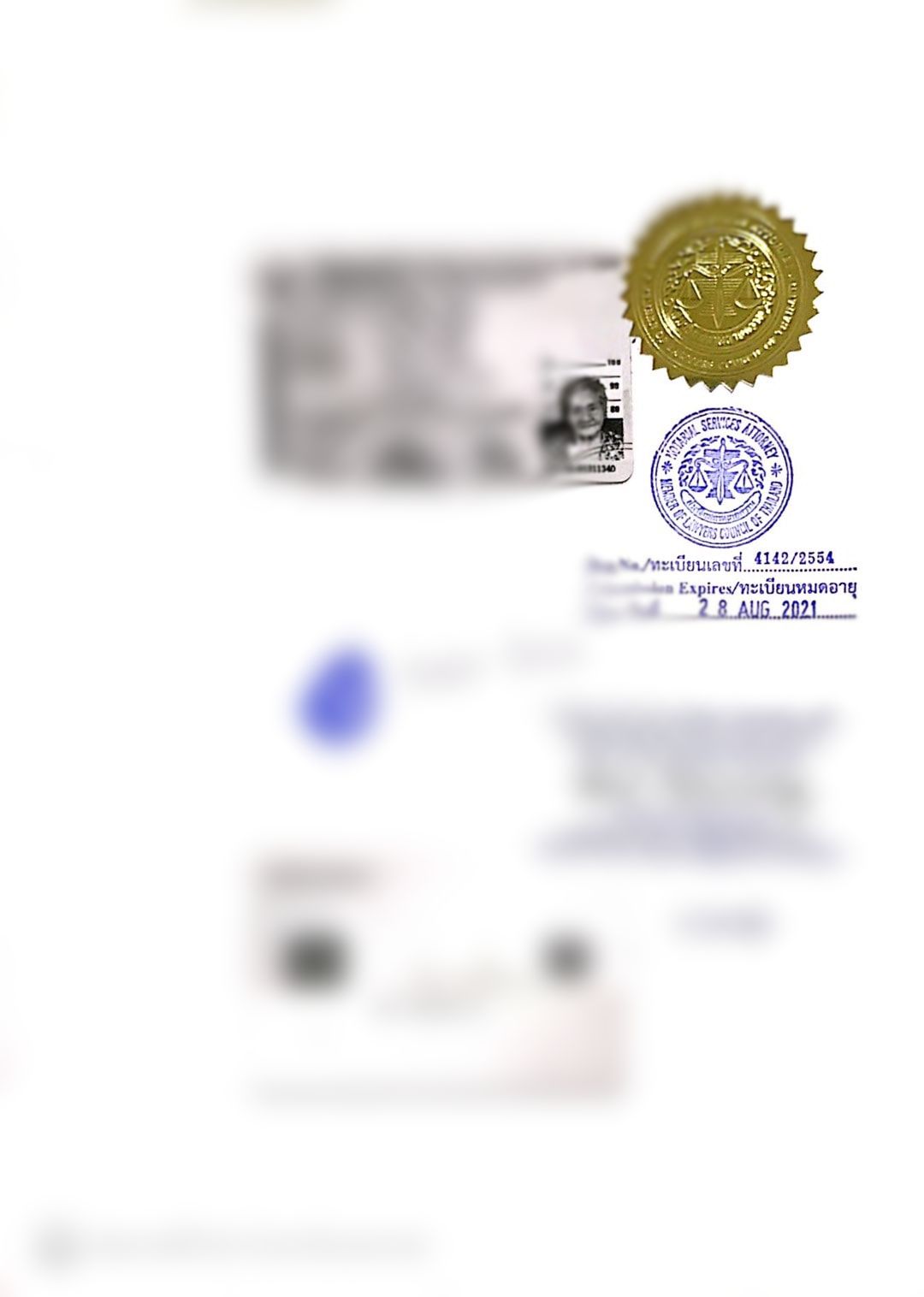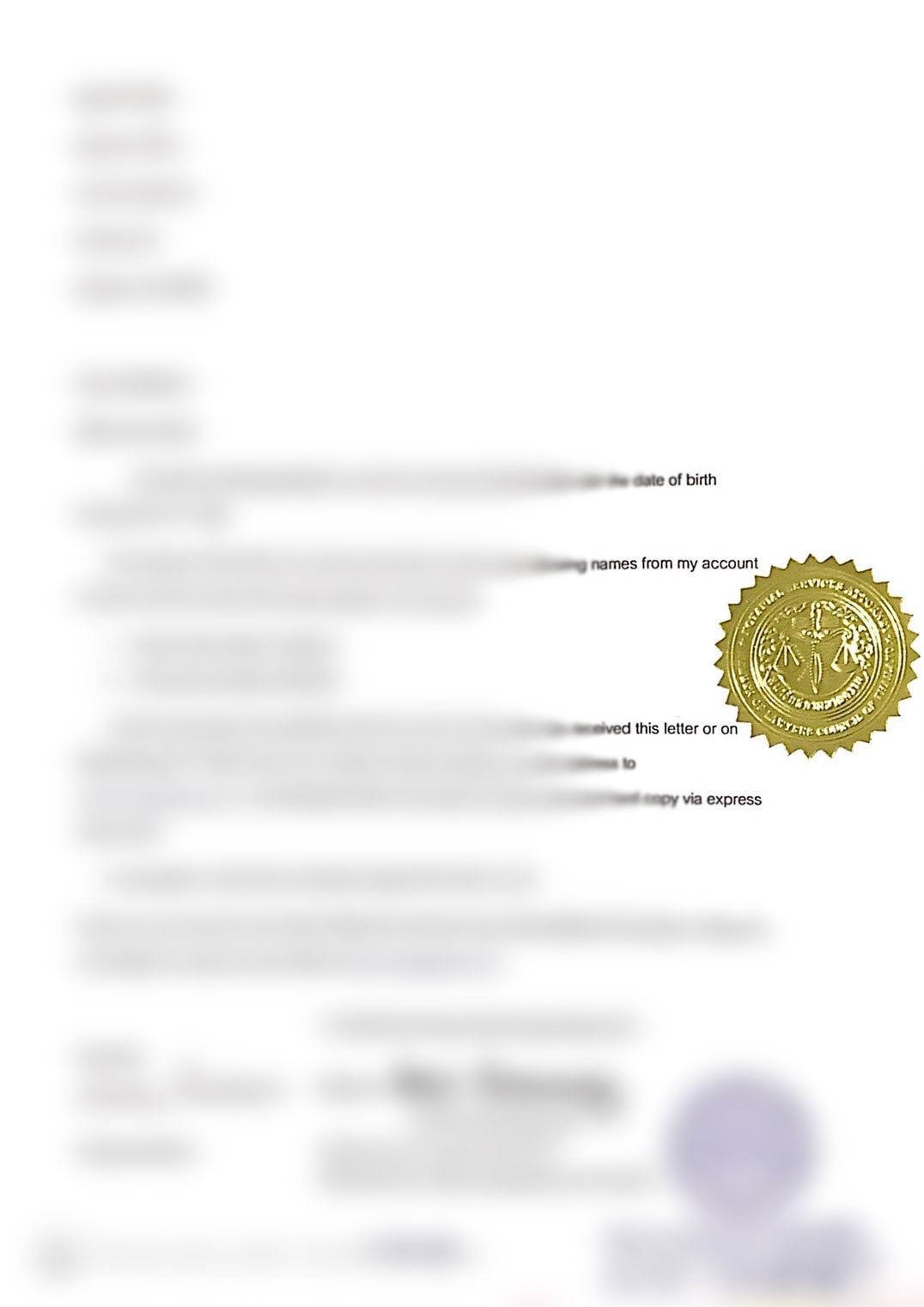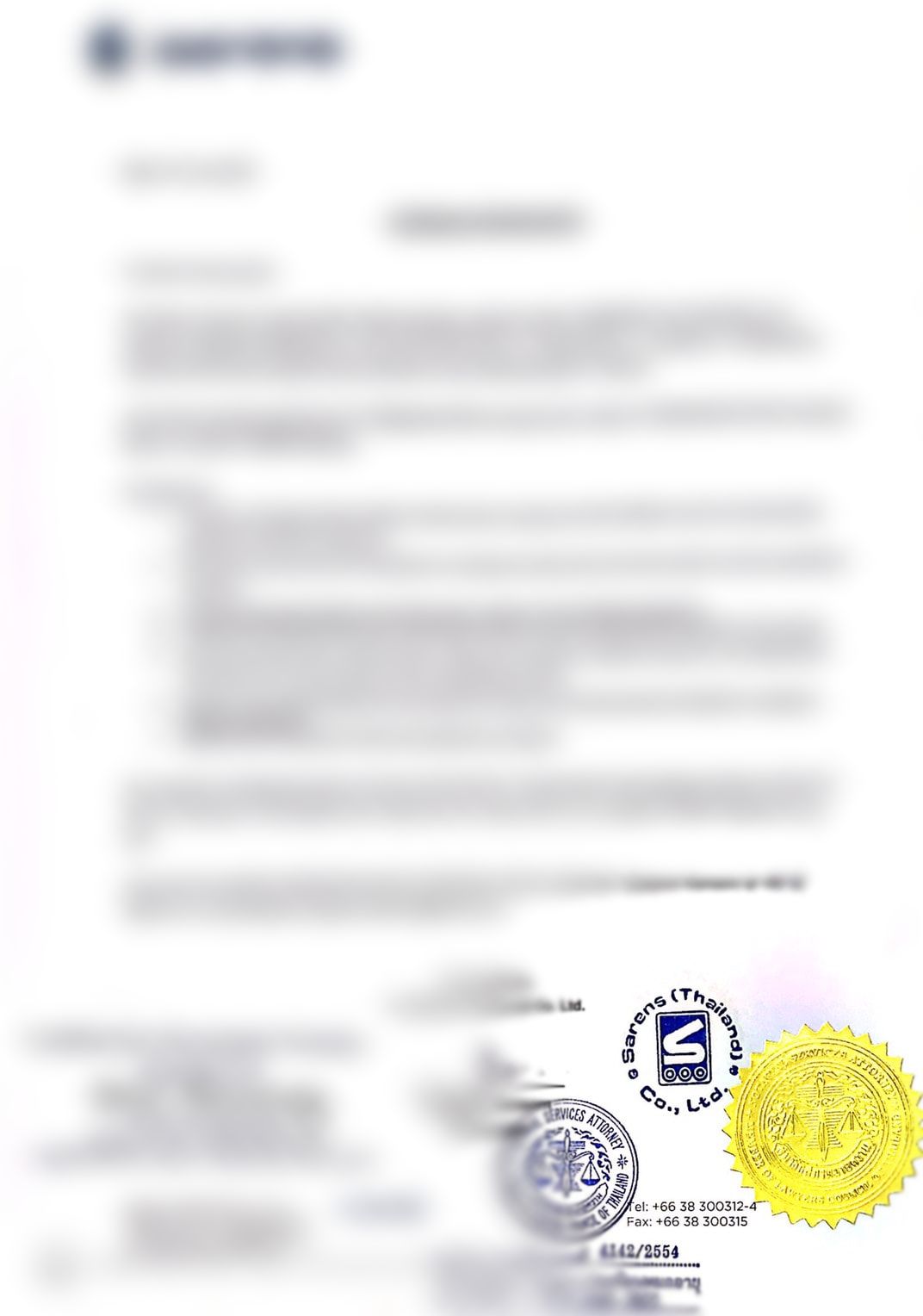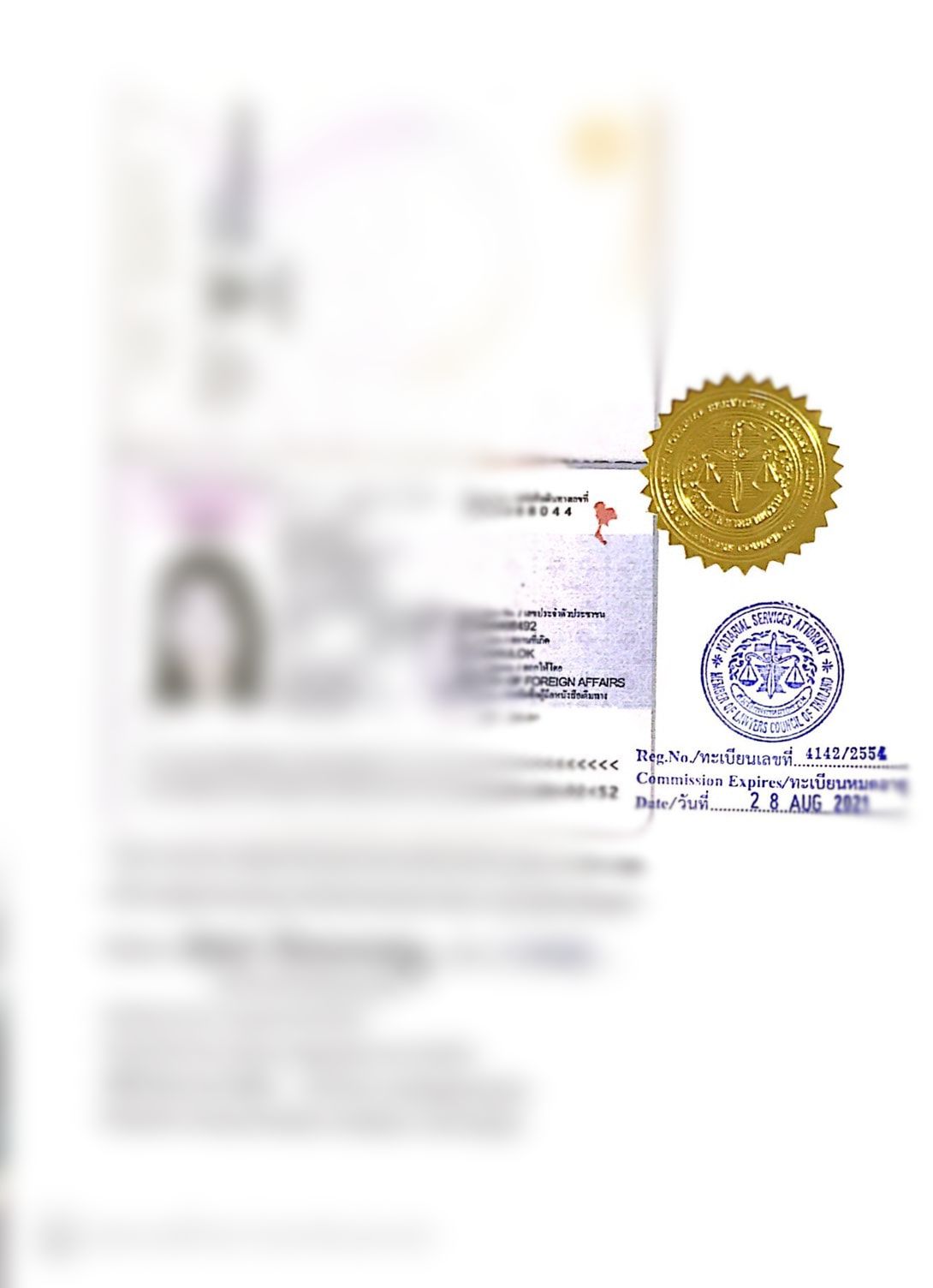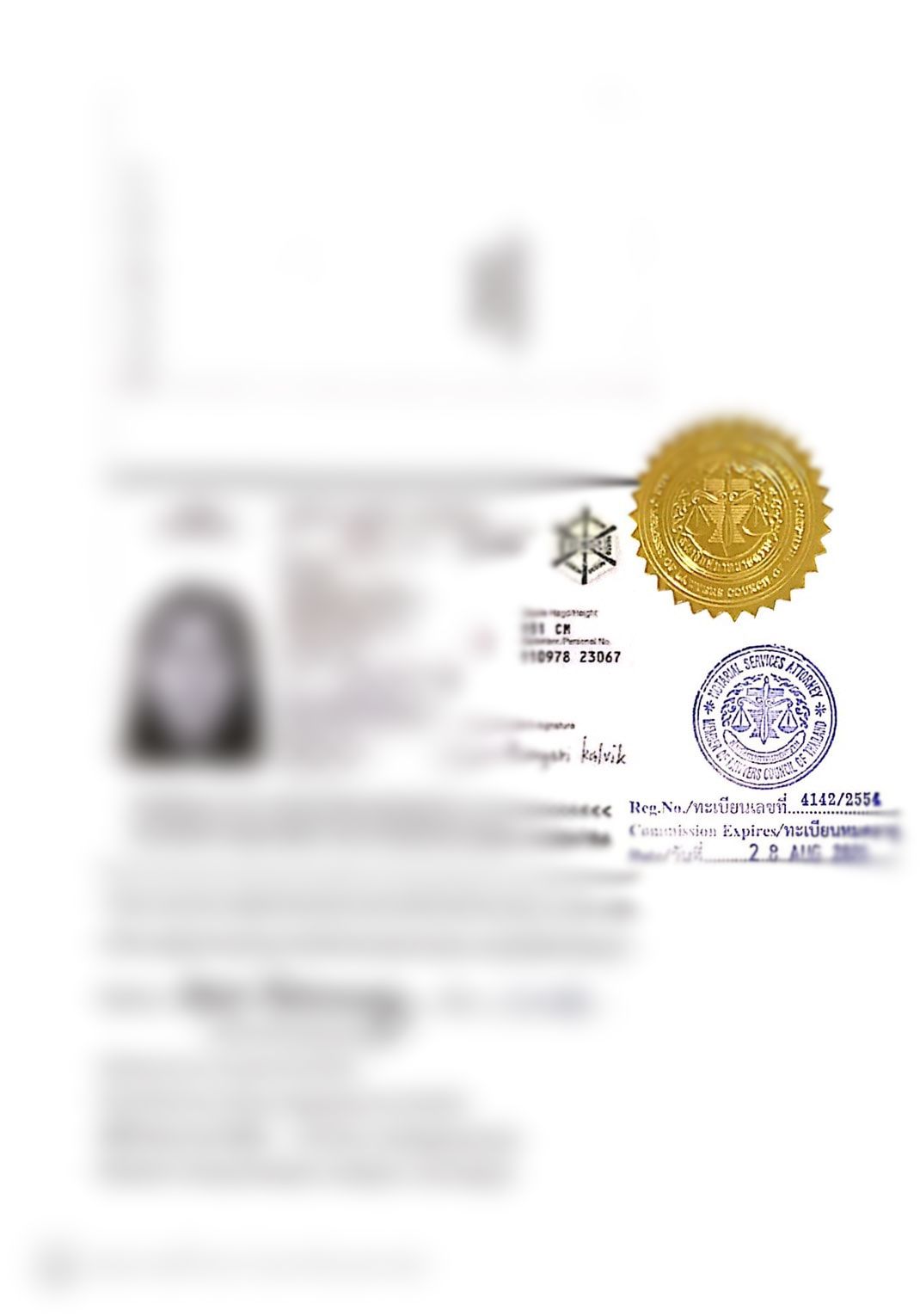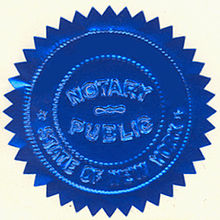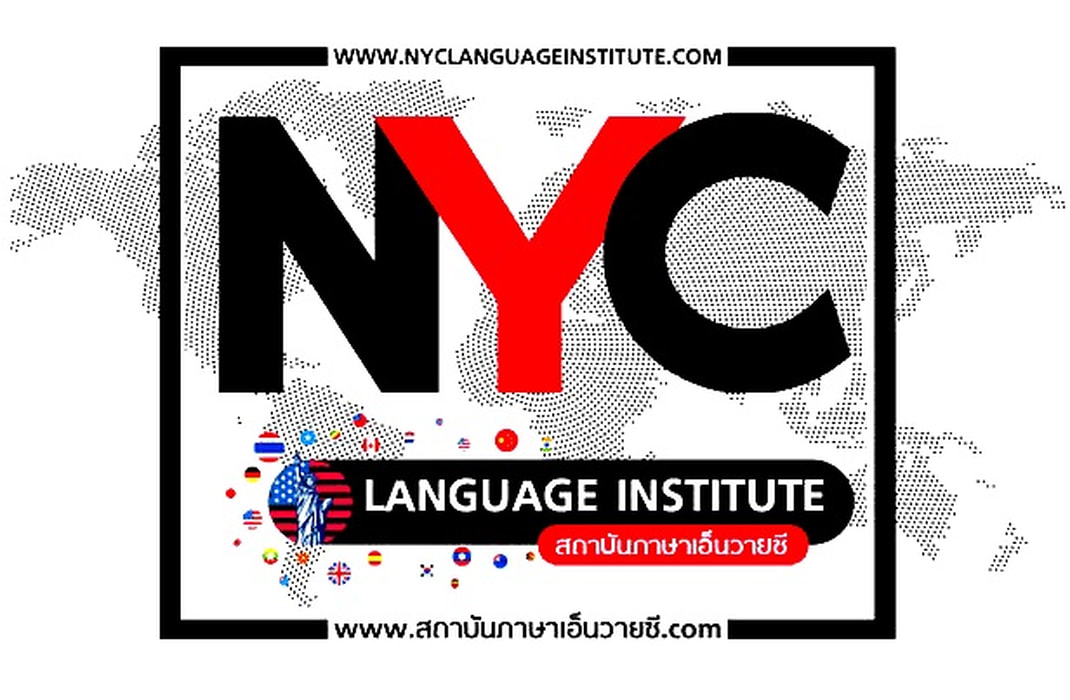ทนายความโนตารี พับลิค รับรองเอกสาร รับรองลายมือชื่อ รับรองบุคคล รับรองคำแปล รับรองเอกสารเพื่อนำไปใช้ในต่างประเทศFind a Notary Public in Thailand outside service any where any time as you requested please call us 061-9865666 Line ID: @NYCTRANSLATION บริการด้านรับรองเอกสารของโนตารี พับลิค Notary Public
รับรองลายมือชื่อ notarized-legalized ต่อกรมกงสุลและนิติกรณ์ไทย
รับรองลายมือชื่อกรรมการบริษัทมหาชน
E-mail : [email protected] (สนใจสอบถามอัตราค่าบริการ ได้ที่ 061-9865666 Line ID : @NYCTRANSLATION)
โนตารี พับลิค (Notary Public) หรือ โนตาเรียล เซอร์วิส แอทโทนี่ (Notarial Services Attorney)ในประเทศไทย คืออะไร Notary Public หรือ Notarial services Attorney ในต่างประเทศหมายถึง บุคคลที่ได้รับแต่งตั้งจากทางราชการของประเทศนั้นๆ ตามหลักเกณฑ์ที่กฎหมายกำหนดไว้ มีหน้าที่ในการจัดทำสัญญา รับรองลายมือชื่อในเอกสาร ลงชื่อในฐานะเป็นพยานใน เอกสาร รับรองเอกสารนั้นๆ ว่าเป็นเอกสารที่ถูกต้องแท้จริงจากต้นฉบับ ให้ทำคำสาบาน หรือทำหน้าที่อื่นๆ ตามที่กฎหมายให้อำนาจไว้และตามหลักปฏิบัติของประเทศนั้นๆ ส่วนมากเอกสารเหล่านั้นจะนำไปใช้ในต่างปรเทศ หรือสถานฑูตประจำประเทศไทย
ในประเทศไทยทนายความที่ได้รับใบอนุญาตจากสภาทนายความ และได้รับอนุญาตให้ทำรับรองลายมือชื่อ และเอกสารจากสภาทนายความ เป็นผู้ทำหน้าที่ Notary Public หรือ Notarial services Attorney โดยสภาทนายความ (The Lawyers council Of Thailand)ได้ออกข้อบังคับสภาทนายความ ว่าด้วยการขึ้นทะเบียนทนายความผู้ทำคำรับรองลายมือชื่อ และเอกสาร พ.ศ. 2551 และระเบียบว่าด้วยการขึ้นทะเบียนทนายความ ผู้ทำคำรับรองลายมือชื่อและเอกสาร พ.ศ. 2552 พร้อมกับเปิดอบรมหลักสูตรทนายความ ผู้ทำคำรับรองลายมือชื่อและเอกสาร ให้แก่ทนายความเพื่อเป็นผู้ทำคำรับรองลายมือชื่อ และเอกสาร
หน้าที่ของ Notary Public หรือ Notarial services Attorney ดังนี้
การปฎิบัติหน้าที่ของทนายความผู้ทำคำรับรองลายมือชื่อและเอกสารตามแนวทางสภาทนายความ มีดังนี้ ทนายความผู้ทำคำรับรองต้องไม่เลือกปฎิบัติ ปฎิบัติหน้าที่ได้เพียงในฐานะพยานรู้เห็นข้อเท็จจริงเท่านั้น การรับรองลายมือชื่อต้องให้ผู้ลงลายมือ ชื่อมาแสดงตัวต่อหน้า และต้องตรวจสอบเอกสารเพื่อยืนยันตัวบุคคล ทนายความผู้ทำคำรับรองต้องให้ความสำคัญแก่ข้อเท็จจริงและเอกสาร ที่ตรวจสอบยิ่งกว่าวิญญูชนทั่วไป และต้องไม่เปิดเผยข้อมูล หรือความลับที่ตนได้รับมาเนื่องจากการปฎิบัติหน้าที่ในฐานะผู้ทำคำรับรอง ดังนั้น การรับรองลายมือชื่อ หรือรับรองเอกสาร หรือจัดทำเอกสารคำรับรองเพื่อนำเอกสารหรือสำเนาเอกสารเหล่านั้นไปใช้ จึงต้องทราบวัตถุประสงค์ ประโยชน์ และหน้าที่ของNotary Public หรือ Notarial Services Attorney จึงจะได้ประโยชน์ ตามความต้องการของผู้รับการรับรอง เพื่อให้เป็นไปตามกฎหมาย ของแต่ละประเทศ from Wikipedia, the free encyclopedia A notary public (or notary or public notary) is a public officer constituted by law to serve the public in non-contentious matters usually concerned with estates, deeds, powers-of-attorney, and foreign and international business. A notary's main functions are to administeroaths and affirmations, take affidavits and statutory declarations,witness and authenticate the execution of certain classes of documents, take acknowledgments of deeds and other conveyances, protest notes and bills of exchange, provide notice of foreign drafts, prepare marine protests in cases of damage, provide exemplifications and notarial copies, and perform certain other official acts depending on thejurisdiction.[1] Any such act is known as a notarization. The term notary public only refers to common-law notaries and should not be confused with civil-law notaries. With the exceptions of Louisiana, Puerto Rico, Quebec, whose private law is based on civil law, and British Columbia, whose notarial tradition stems from scrivener notary practice, a notary public in the rest of the United States and most of Canada has powers that are far more limited than those of civil-law or other common-law notaries, both of whom are qualified lawyers admitted to the bar: such notaries may be referred to as notaries-at-law or lawyer notaries. Therefore, at common law, notarial service is distinct from the practice of law, and giving legal advice and preparing legal instruments is forbidden to law notaries.
- รับรองเอกสารเพื่อบังคับใช้ในอีกประเทศหนึ่ง เพื่อใช้ในต่างประเทศ
- รับรองเอกสาร รับรองใบสมัคร เพื่อเรียนต่อต่างประเทศ Affidavit of support /Sponser Notarization
- รับรองสำเนาเอกสาร Certified true copy
- รับรองสถานะการเงิน Statement Notarization
- รับรองคำแปล แปลเอกสาร Certified true translation
- รับรองลายมือชื่อ รับรองบุคคล กรรมการนิติบุคคล บริษัทจำกัด บริษัทมหาชนSignature Notarization and Legalization
- รับรองข้อเท็จจริง Marine protest Notary Public
- รับรองความมีอยู่จริงของเอกสาร
- รับรองการทำสัญญาระหว่างเอกชน Contract Agreement Notary Public
- รับรองคำสาบาน Applicant Declaration
- รับรองคำให้การ Declaration Notary Public
- รับรองหนังสืออนุญาตจากผู้ปกครอง Letter of Authorization for Travel / Custodianship declaration-Parents / Guardians Notary Public
- รับรองลายมือชื่อกรรมการ บริษัทจำกัด บริษัทมหาชนจำกัด เพื่อยื่นต่อกรมพัฒนา ธุรกิจการค้า กระทรวงพาณิชย์
- อื่นๆ ตามที่กฎหมายกำหนดอัตราค่าบริการ Notary Public 's Fee
- รับรองเอกสารโนตารี พับลิค
- รับรองลายมือชื่อ
รับรองลายมือชื่อ notarized-legalized ต่อกรมกงสุลและนิติกรณ์ไทย
รับรองลายมือชื่อกรรมการบริษัทมหาชน
E-mail : [email protected] (สนใจสอบถามอัตราค่าบริการ ได้ที่ 061-9865666 Line ID : @NYCTRANSLATION)
โนตารี พับลิค (Notary Public) หรือ โนตาเรียล เซอร์วิส แอทโทนี่ (Notarial Services Attorney)ในประเทศไทย คืออะไร Notary Public หรือ Notarial services Attorney ในต่างประเทศหมายถึง บุคคลที่ได้รับแต่งตั้งจากทางราชการของประเทศนั้นๆ ตามหลักเกณฑ์ที่กฎหมายกำหนดไว้ มีหน้าที่ในการจัดทำสัญญา รับรองลายมือชื่อในเอกสาร ลงชื่อในฐานะเป็นพยานใน เอกสาร รับรองเอกสารนั้นๆ ว่าเป็นเอกสารที่ถูกต้องแท้จริงจากต้นฉบับ ให้ทำคำสาบาน หรือทำหน้าที่อื่นๆ ตามที่กฎหมายให้อำนาจไว้และตามหลักปฏิบัติของประเทศนั้นๆ ส่วนมากเอกสารเหล่านั้นจะนำไปใช้ในต่างปรเทศ หรือสถานฑูตประจำประเทศไทย
ในประเทศไทยทนายความที่ได้รับใบอนุญาตจากสภาทนายความ และได้รับอนุญาตให้ทำรับรองลายมือชื่อ และเอกสารจากสภาทนายความ เป็นผู้ทำหน้าที่ Notary Public หรือ Notarial services Attorney โดยสภาทนายความ (The Lawyers council Of Thailand)ได้ออกข้อบังคับสภาทนายความ ว่าด้วยการขึ้นทะเบียนทนายความผู้ทำคำรับรองลายมือชื่อ และเอกสาร พ.ศ. 2551 และระเบียบว่าด้วยการขึ้นทะเบียนทนายความ ผู้ทำคำรับรองลายมือชื่อและเอกสาร พ.ศ. 2552 พร้อมกับเปิดอบรมหลักสูตรทนายความ ผู้ทำคำรับรองลายมือชื่อและเอกสาร ให้แก่ทนายความเพื่อเป็นผู้ทำคำรับรองลายมือชื่อ และเอกสาร
หน้าที่ของ Notary Public หรือ Notarial services Attorney ดังนี้
- รับรองลายมือชื่อในเอกสาร
- รับรองนิติกรรมที่เอกชนทำขึ้น
- รับรองคำแปลเอกสาร
- รับรองข้อเท็จจริง
- รับรองสำเนาเอกสาร
- รับรองความมีอยู่ของเอกสาร
- จัดทำคำสาบาน
- จัดทำบันทึกคำให้การ
- ทำคำคัดค้านตราสาร
- รับรองตัวบุคคล
- ทำหน้าที่อื่นที่กฎหมายกำหนด
การปฎิบัติหน้าที่ของทนายความผู้ทำคำรับรองลายมือชื่อและเอกสารตามแนวทางสภาทนายความ มีดังนี้ ทนายความผู้ทำคำรับรองต้องไม่เลือกปฎิบัติ ปฎิบัติหน้าที่ได้เพียงในฐานะพยานรู้เห็นข้อเท็จจริงเท่านั้น การรับรองลายมือชื่อต้องให้ผู้ลงลายมือ ชื่อมาแสดงตัวต่อหน้า และต้องตรวจสอบเอกสารเพื่อยืนยันตัวบุคคล ทนายความผู้ทำคำรับรองต้องให้ความสำคัญแก่ข้อเท็จจริงและเอกสาร ที่ตรวจสอบยิ่งกว่าวิญญูชนทั่วไป และต้องไม่เปิดเผยข้อมูล หรือความลับที่ตนได้รับมาเนื่องจากการปฎิบัติหน้าที่ในฐานะผู้ทำคำรับรอง ดังนั้น การรับรองลายมือชื่อ หรือรับรองเอกสาร หรือจัดทำเอกสารคำรับรองเพื่อนำเอกสารหรือสำเนาเอกสารเหล่านั้นไปใช้ จึงต้องทราบวัตถุประสงค์ ประโยชน์ และหน้าที่ของNotary Public หรือ Notarial Services Attorney จึงจะได้ประโยชน์ ตามความต้องการของผู้รับการรับรอง เพื่อให้เป็นไปตามกฎหมาย ของแต่ละประเทศ from Wikipedia, the free encyclopedia A notary public (or notary or public notary) is a public officer constituted by law to serve the public in non-contentious matters usually concerned with estates, deeds, powers-of-attorney, and foreign and international business. A notary's main functions are to administeroaths and affirmations, take affidavits and statutory declarations,witness and authenticate the execution of certain classes of documents, take acknowledgments of deeds and other conveyances, protest notes and bills of exchange, provide notice of foreign drafts, prepare marine protests in cases of damage, provide exemplifications and notarial copies, and perform certain other official acts depending on thejurisdiction.[1] Any such act is known as a notarization. The term notary public only refers to common-law notaries and should not be confused with civil-law notaries. With the exceptions of Louisiana, Puerto Rico, Quebec, whose private law is based on civil law, and British Columbia, whose notarial tradition stems from scrivener notary practice, a notary public in the rest of the United States and most of Canada has powers that are far more limited than those of civil-law or other common-law notaries, both of whom are qualified lawyers admitted to the bar: such notaries may be referred to as notaries-at-law or lawyer notaries. Therefore, at common law, notarial service is distinct from the practice of law, and giving legal advice and preparing legal instruments is forbidden to law notaries.
Welcome to NYC Notary Service!
How can our Notary help you?
Our Notary Service Attorneys, who can speak English fluently, provide notarize services for many kinds of documents.
Our fee is reasonable and fixed at 1500 baht per each signature.
To save the time of our clients, we offer delivery services.
In the BTS or MRT routes, center of Bangkok, the delivery is free of charge.
For Individuals
Our Notary Service Attorneys can notarize all types of personal documents for use abroad. The most frequently notarized documents are:
For Business
Our Notary Notarize all types of corporate or business documents, including:
Notary ServicesWhat services does a Notary Service Attorney provide?
A Notary, or Notary Service attorney, can notarize or witness most documents. You will often require the services of a Notary when you have documents which are needed to be used abroad. The Notary‘s signature and stamp will certify your documents in that country that any relevant checks have been carried out and properly signed. Notarization is often necessary and required especially by both government and private sector such as bank, school, embassy, or private company. Thai Notary Service attorney are given the authority to operate as a Notary Services Attorney in Thailand by the Lawyers Council of Thailand. Hence, no matter what nationality you are, when you required to attest documents or the authentication of signature to use in a foreign jurisdiction, we are always able to assist you.
Our Notary Service Attorneys can notarize all types of personal documents for use abroad. The most frequently notarize documents;
NOTE!Notary or Notary Public is an official who is licensed by the State to perform as the authentication of signatures or documents, and the witnessing of affidavits or statements of persons under oath. In most countries, notarization of a document is important as the act of notarization itself creates a guarantee on the authenticity of the document, or to the act of the signatories to the instrument. As Thailand is not a signatory to the Hague Convention on Legalization of Foreign Public Documents yet, there is no Notary Public in Thailand. However, there is a Notary Services Attorney to notarize documents in Thailand (given the authority by the Lawyers Council of Thailand which regulates the practice of Notary services in the State). In some cases, the documents might required to have the notarized document authenticated or legalized further at the Embassy of the country to which the document is to be presented. Notary Services At the Embassy In case you have documents that need to be used in others country, you might need to use the notary services from that embassy. Additionally, you might need to use your own embassy services. Please make sure with your embassy or your lawyer in your country before.
How can our Notary help you?
Our Notary Service Attorneys, who can speak English fluently, provide notarize services for many kinds of documents.
Our fee is reasonable and fixed at 1500 baht per each signature.
To save the time of our clients, we offer delivery services.
In the BTS or MRT routes, center of Bangkok, the delivery is free of charge.
For Individuals
Our Notary Service Attorneys can notarize all types of personal documents for use abroad. The most frequently notarized documents are:
- Notarized international contracts and agreements
- Notarized Commercial and Personal documents
- Power of Attorney for use abroad
- Certified copy of documents as true copies
- Certified certificates
- Certified bank documents and letters
- Property documents for use abroad
- Legal documents for use abroad
- A certified copy of passport
- Open a bank account abroad
- Buy or sell or transfer a property
- A translation notarize by a Notary
- Notarized affidavit
- Sign an acknowledgement in front of a Notary
- Witnessed your signature
For Business
Our Notary Notarize all types of corporate or business documents, including:
- Power of Attorney
- Documents for companies
- Affidavit, statements, or declaration
- Legal translations
- Certificate of identity of directors or company officers
- Certificate of Company good Standing
- Memorandum and Articles of Association
- Company resolutions, minutes, contracts, and reports
Notary ServicesWhat services does a Notary Service Attorney provide?
A Notary, or Notary Service attorney, can notarize or witness most documents. You will often require the services of a Notary when you have documents which are needed to be used abroad. The Notary‘s signature and stamp will certify your documents in that country that any relevant checks have been carried out and properly signed. Notarization is often necessary and required especially by both government and private sector such as bank, school, embassy, or private company. Thai Notary Service attorney are given the authority to operate as a Notary Services Attorney in Thailand by the Lawyers Council of Thailand. Hence, no matter what nationality you are, when you required to attest documents or the authentication of signature to use in a foreign jurisdiction, we are always able to assist you.
- For Individuals
- For Business
Our Notary Service Attorneys can notarize all types of personal documents for use abroad. The most frequently notarize documents;
- Notarize private contracts and agreements
- Power of Attorney for use abroad
- Certified copy of documents as true copies
- Certified copy of passport as true copies
- Certified certificates
- Certified Bank documents and letters
- Property documents for use abroad
- Legal documents for use abroad
- Power of Attorney
- Documents for Company, Director and Shareholder
- Affidavit, statements, or declaration
- Legal Translations
- Certificate of identity of directors or company officers
- Certificate of Company good Standing
- Memorandum and Articles of Association
- Company Resolution, minutes, contracts, and reports
NOTE!Notary or Notary Public is an official who is licensed by the State to perform as the authentication of signatures or documents, and the witnessing of affidavits or statements of persons under oath. In most countries, notarization of a document is important as the act of notarization itself creates a guarantee on the authenticity of the document, or to the act of the signatories to the instrument. As Thailand is not a signatory to the Hague Convention on Legalization of Foreign Public Documents yet, there is no Notary Public in Thailand. However, there is a Notary Services Attorney to notarize documents in Thailand (given the authority by the Lawyers Council of Thailand which regulates the practice of Notary services in the State). In some cases, the documents might required to have the notarized document authenticated or legalized further at the Embassy of the country to which the document is to be presented. Notary Services At the Embassy In case you have documents that need to be used in others country, you might need to use the notary services from that embassy. Additionally, you might need to use your own embassy services. Please make sure with your embassy or your lawyer in your country before.
ทนายความผู้ทำคำรับรองลายมือชื่อและเอกสาร มีหน้าที่ดังนี้
การปฏิบัติหน้าที่ของทนายความผู้ทำคำรับรองลายมือชื่อและเอกสาร
- รับรองนิติกรรมที่เอกชนทำขึ้น
- รับรองคำแปลเอกสาร
- รับรองข้อเท็จจริง
- รับรองสำเนาเอกสาร
- รับรองความมีอยู่ของเอกสาร
- จัดทำคำสาบาน
- จัดทำบันทึกคำให้การ
- ทำคำคัดค้านตราสาร
- รับรองตัวบุคคล,รับรองลายมือชื่อในเอกสาร
- ทำหน้าที่อื่นตามที่กฎหมายกำหนด
การปฏิบัติหน้าที่ของทนายความผู้ทำคำรับรองลายมือชื่อและเอกสาร
- ทนายความผู้ทำคำรับรอง จะถือว่างานในหน้าที่นี้เป็นการบริการต่อสาธารณชน จึงต้องให้บริการโดยบริสุทธิ์ ยุติธรรม และไม่เลือกปฏิบัติ
- ในการปฏิบัติหน้าที่ทนายความผู้ทำคำรับรอง จะทำหน้าที่ในฐานะพยานรู้เห็นโดยสุจริตและเที่ยงธรรม และไม่เห็นแก่เงินสินจ้างหรือค่าตอบแทนเว้นแต่ค่าธรรมเนียมตามสมควรหรือตาม ที่กฎหมายหรือข้อบังคับหรือระเบียบของสภาทนายกำหนดไว้
- ในการรับรองลายมือชื่อของบุคคลหรือคำสาบานของบุคคล ทนายความผู้ทำคำรับรอง จะต้องให้ผู้ลงลายมือชื่อหรือให้คำสาบานมาปรากฏตัวด้วยตนเองและจะต้องตรวจ สอบบัตรประจำตัวประชาชนของบุคคลนั้นๆ รวมทั้งความสมัครใจและต้องให้แน่ใจว่าบุคคลที่จะลงลายมือชื่อหรือให้คำสาบาน ตนนั้นทราบถึงความสำคัญของการลงลายมือหรือคำสาบานนั้นด้วย
- ทนายความผู้ทำคำรับรอง จะต้องไม่ออกคำรับรองเท็จ หรือคำรับรองที่ไม่ครบถ้วนบริบูรณ์ ทั้งจะต้องไม่เกี่ยวข้องกับเอกสารหรือธุรกรรมใดๆ ที่เป็นเท็จมีลักษณะหลอกลวงหรือฉ้อฉล
- ทนายความผู้ทำคำรับรอง จะต้องให้ความสำคัญแก่ความถูกต้องของข้อเท็จจริงที่ตรวจสอบได้โดยเอกสารและ การกระทำที่ชอบด้วยกฎหมายยิ่งกว่าความต้องการหรือความคาดหวังของบุคคลที่มา ขอให้ทำคำรับรอง
- ทนายความผู้ทำคำรับรอง พึงกระทำการเฉพาะในสิ่งที่เป็นอำนาจหน้าที่โดยเฉพาะเจาะจงของตนเท่านั้น ไม่พึงก้าวล่วงไปให้คำแนะนำหรือทำคำรับรองนอกเหนือจากอำนาจหน้าที่ตามกฎหมาย หรือตามประเพณีปฏิบัติเกี่ยวกับงานในอำนาจหน้าที่ทนายความผู้ทำคำรับรอง
- ในกรณีที่ต้องใช้ตราประทับ ทนายความผู้ทำคำรับรองจะต้องระมัดระวังเก็บรักษาดวงตราไว้เพื่อการรับรองโดย เคร่งครัด และต้องไม่อนุญาตให้บุคคลอื่นใดนำดวงตราดังกล่าวไปใช้เพื่อการใดๆ โดยเด็ดขาด
- ในการปฏิบัติหน้าที่ทนายความผู้ทำคำรับรอง จะต้องทำการบันทึกและเก็บสำเนาเอกสารการปฏิบัติหน้าที่ในฐานะทนายความผู้ทำ คำรับรอง ในสมุดบันทึกงานทุกรายการ และต้องเก็บรักษาสมุดบันทึกดังกล่าวไว้ที่สำนักงานของตน หรือในที่ปลอดภัยอื่นๆ
- ทนายความผู้ทำคำรับรอง พึงต้องเคารพสิทธิส่วนบุคคลของผู้ที่มาใช้บริการ และจะต้องไม่เปิดเผยข้อมูลส่วนบุคคลหรือความลับที่ตนได้รับมาเนื่องจาก หน้าที่ทนายความผู้ทำคำรับรองเพื่อการใดๆ เว้นแต่ที่เกี่ยวกับการปฏิบัติหน้าที่ในฐานะทนายความผู้ทำคำรับรองหรือมี กฎหมายหรือคำสั่งศาลให้เปิดเผยได้
- ทนายความผู้ทำคำรับรอง จะปฏิบัติหน้าที่เมื่อได้รับการร้องขอเท่านั้น และต้องปฏิบัติหน้าที่ตามกฎหมายหรือประเพณีที่มีอยู่ในขณะนั้น
Notary public
From Wikipedia, the free encyclopedia
A notary public (or notary or public notary) of the common law is a public officer constituted by law to serve the public in non-contentious matters usually concerned with estates, deeds, powers-of-attorney, and foreign and international business. A notary's main functions are to administer oaths and affirmations, take affidavits and statutory declarations, witness and authenticate the execution of certain classes of documents, take acknowledgments of deeds and other conveyances, protest notes and bills of exchange, provide notice of foreign drafts, prepare marine or ship's protests in cases of damage, provide exemplifications and notarial copies, and perform certain other official acts depending on the jurisdiction.[1] Any such act is known as a notarization. The term notary public only refers to common-law notaries and should not be confused with civil-law notaries.[2]
With the exceptions of Louisiana, Puerto Rico, Quebec (whose private law is based on civil law), and British Columbia (whose notarial tradition stems from scrivener notary practice), a notary public in the rest of the United States and most of Canada has powers that are far more limited than those of civil-law or other common-law notaries, both of whom are qualified lawyers admitted to the bar: such notaries may be referred to as notaries-at-law or lawyer notaries. Therefore, at common law, notarial service is distinctly different from the practice of law, and giving legal advice and preparing legal instruments is forbidden to lay notaries such as those appointed throughout most of the United States.
With the exceptions of Louisiana, Puerto Rico, Quebec (whose private law is based on civil law), and British Columbia (whose notarial tradition stems from scrivener notary practice), a notary public in the rest of the United States and most of Canada has powers that are far more limited than those of civil-law or other common-law notaries, both of whom are qualified lawyers admitted to the bar: such notaries may be referred to as notaries-at-law or lawyer notaries. Therefore, at common law, notarial service is distinctly different from the practice of law, and giving legal advice and preparing legal instruments is forbidden to lay notaries such as those appointed throughout most of the United States.
Overview
Notaries are appointed by a government authority, such as a court or lieutenant governor, or by a regulating body often known as a society or faculty of notaries public. For lawyer notaries, an appointment may be for life, while lay notaries are usually commissioned for a briefer term, with the possibility of renewal.
In most common law countries, appointments and their number for a given notarial district are highly regulated. However, since the majority of American notaries are lay persons who provide officially required services, commission numbers are not regulated, which is part of the reason why there are far more notaries in the United States than in other countries (4.5 million[3] vs. approx. 740 in England and Wales and approx. 1,250 in Australia and New Zealand). Furthermore, all U.S. and some Canadian notarial functions are applied to domestic affairs and documents, where fully systematized attestations of signatures and acknowledgment of deeds are a universal requirement for document authentication. By contrast, outside North American common law jurisdictions, notarial practice is restricted to international legal matters or where a foreign jurisdiction is involved,[4] and almost all notaries are also qualified lawyers.
For the purposes of authentication, most countries require commercial or personal documents which originate from or are signed in another country to be notarized before they can be used or officially recorded or before they can have any legal effect. To these documents a notary affixes a notarial certificate which attests to the execution of the document, usually by the person who appears before the notary, known as an appearer or constituent (U.S.). In places where lawyer notaries are the norm, a notary may also draft legal instruments known as notarial acts or deeds which have probative value and executory force, as they do in civil law jurisdictions. Originals or secondary originals are then filed and stored in the notary's archives, or protocol.
Notaries are generally required to undergo special training in the performance of their duties. Some must also first serve as an apprentice before being commissioned or licensed to practice their profession. In many countries, even licensed lawyers, e.g., barristers or solicitors, must follow a prescribed specialized course of study and be mentored for two years before being allowed to practice as a notary (e.g., British Columbia, England). However, notaries public in the U.S., of which the vast majority are lay people, require only a brief training seminar and are expressly forbidden to engage in any activities that could be construed as the unlicensed practice of law unless they are also qualified attorneys. Notarial practice is universally considered to be distinct and separate from that of an attorney (solicitor/barrister). In England and Wales, there is a course of study for notaries which is conducted under the auspices of the University of Cambridge and the Society of Notaries of England and Wales. In the State of Victoria, Australia, applicants for appointment must first complete a Graduate Diploma of Notarial Practice which is administered by the Sir Zelman Cowen Centre in Victoria University, Melbourne.
In bi-juridical jurisdictions, such as South Africa or Louisiana, the office of notary public is a legal profession with educational requirements similar to those for attorneys. Many even have institutes of higher learning that offer degrees in notarial law. Therefore, despite their name, "notaries public" in these jurisdictions are in effect civil law notaries.
In most common law countries, appointments and their number for a given notarial district are highly regulated. However, since the majority of American notaries are lay persons who provide officially required services, commission numbers are not regulated, which is part of the reason why there are far more notaries in the United States than in other countries (4.5 million[3] vs. approx. 740 in England and Wales and approx. 1,250 in Australia and New Zealand). Furthermore, all U.S. and some Canadian notarial functions are applied to domestic affairs and documents, where fully systematized attestations of signatures and acknowledgment of deeds are a universal requirement for document authentication. By contrast, outside North American common law jurisdictions, notarial practice is restricted to international legal matters or where a foreign jurisdiction is involved,[4] and almost all notaries are also qualified lawyers.
For the purposes of authentication, most countries require commercial or personal documents which originate from or are signed in another country to be notarized before they can be used or officially recorded or before they can have any legal effect. To these documents a notary affixes a notarial certificate which attests to the execution of the document, usually by the person who appears before the notary, known as an appearer or constituent (U.S.). In places where lawyer notaries are the norm, a notary may also draft legal instruments known as notarial acts or deeds which have probative value and executory force, as they do in civil law jurisdictions. Originals or secondary originals are then filed and stored in the notary's archives, or protocol.
Notaries are generally required to undergo special training in the performance of their duties. Some must also first serve as an apprentice before being commissioned or licensed to practice their profession. In many countries, even licensed lawyers, e.g., barristers or solicitors, must follow a prescribed specialized course of study and be mentored for two years before being allowed to practice as a notary (e.g., British Columbia, England). However, notaries public in the U.S., of which the vast majority are lay people, require only a brief training seminar and are expressly forbidden to engage in any activities that could be construed as the unlicensed practice of law unless they are also qualified attorneys. Notarial practice is universally considered to be distinct and separate from that of an attorney (solicitor/barrister). In England and Wales, there is a course of study for notaries which is conducted under the auspices of the University of Cambridge and the Society of Notaries of England and Wales. In the State of Victoria, Australia, applicants for appointment must first complete a Graduate Diploma of Notarial Practice which is administered by the Sir Zelman Cowen Centre in Victoria University, Melbourne.
In bi-juridical jurisdictions, such as South Africa or Louisiana, the office of notary public is a legal profession with educational requirements similar to those for attorneys. Many even have institutes of higher learning that offer degrees in notarial law. Therefore, despite their name, "notaries public" in these jurisdictions are in effect civil law notaries.
History
Further information: Civil law notary
Notaries public (also called "notaries", "notarial officers", or "public notaries") hold an office that can trace its origins back to the ancient Roman Republic, when they were called scribae ("scribes"), tabelliones forenses, or personae publicae.[5]
The history of notaries is set out in detail in Chapter 1 of Brooke's Notary (13th edition):[6]
The office of a public notary is a public office. It has a long and distinguished history. The office has its origin in the civil institutions of ancient Rome. Public officials, called scribae, that is to say, scribes, rose in rank from being mere recorders of facts and judicial proceedings, copiers and transcribers to a learned profession prominent in private and public affairs. Some were permanent officials attached to the Senate and courts of law whose duties were to record public proceedings, transcribe state papers, supply magistrates with legal forms, and register the decrees and judgments of magistrates.
In the last century of the Republic, probably in the time of Cicero, and apparently by his adoptive son Marcus Tullius Tiro, after whom they were named 'notae Tironianae' a new form of shorthand was invented and certain arbitrary marks and signs, called notae, were substituted for words in common use. A writer who adopted the new method was called a notarius. Originally, a notary was one who took down statements in shorthand using these notes, and wrote them out in the form of memoranda or minutes. Later, the title notarius was applied almost exclusively to registrars attached to high government officials, including provincial governors and secretaries to the Emperor.
Notwithstanding the collapse of the Western Empire in the 5th century AD, the notary remained a figure of some importance in many parts of continental Europe throughout the Dark Ages. When the civil law experienced its renaissance in medieval Italy from the 12th century onwards, the notary was established as a central institution of that law, a position which still exists in countries whose legal systems are derived from the civil law, including most of Europe and South America. The office of notary reached its apogee in the Italian city of Bologna in the twelfth century, its most distinguished scion being Rolandino Passeggeri generally known as Rolandino of Bologna, who died in 1300 AD, whose masterwork was the Summa Artis Notariae.
The separate development of the common law in England, free from most of the influences of Roman law, meant that notaries were not introduced into England until later in the 13th and 14th centuries. At first, notaries in England were appointed by the Papal Legate. In 1279 the Archbishop of Canterbury was authorized by the Pope to appoint notaries. Not surprisingly, in those early days, many of the notaries were members of the clergy. In the course of time, members of the clergy ceased to take part in secular business and laymen, especially in towns and trading centers, began to assume the official character and functions of a modern common law notary.
The Reformation produced no material change in the position and functions of notaries in England. However, in 1533 the enactment of "the Act Concerning Peter's Pence and Dispensations" (the Ecclesiastical Licences Act 1533) terminated the power of the Pope to appoint notaries and vested that power in the King who then transferred it to the Archbishop of Canterbury who in turn assigned it to the Court of Faculties and the Master of the Faculties.
Traditionally, notaries recorded matters of judicial importance as well as private transactions or events where an officially authenticated record or a document drawn up with professional skill or knowledge was required.
A collection of articles on notary history, including Ancient Egypt, Phoenicia, Babylonia, Rome, Greece, medieval Europe, the Renaissance, Columbus, Spanish Conquistadors, French Louisiana, New England colonial notaries, Republic of Texas notaries and Colorado Old West notaries, is available in the notary history section of the Colorado Notary Blog at the following link.[7]
Notaries public (also called "notaries", "notarial officers", or "public notaries") hold an office that can trace its origins back to the ancient Roman Republic, when they were called scribae ("scribes"), tabelliones forenses, or personae publicae.[5]
The history of notaries is set out in detail in Chapter 1 of Brooke's Notary (13th edition):[6]
The office of a public notary is a public office. It has a long and distinguished history. The office has its origin in the civil institutions of ancient Rome. Public officials, called scribae, that is to say, scribes, rose in rank from being mere recorders of facts and judicial proceedings, copiers and transcribers to a learned profession prominent in private and public affairs. Some were permanent officials attached to the Senate and courts of law whose duties were to record public proceedings, transcribe state papers, supply magistrates with legal forms, and register the decrees and judgments of magistrates.
In the last century of the Republic, probably in the time of Cicero, and apparently by his adoptive son Marcus Tullius Tiro, after whom they were named 'notae Tironianae' a new form of shorthand was invented and certain arbitrary marks and signs, called notae, were substituted for words in common use. A writer who adopted the new method was called a notarius. Originally, a notary was one who took down statements in shorthand using these notes, and wrote them out in the form of memoranda or minutes. Later, the title notarius was applied almost exclusively to registrars attached to high government officials, including provincial governors and secretaries to the Emperor.
Notwithstanding the collapse of the Western Empire in the 5th century AD, the notary remained a figure of some importance in many parts of continental Europe throughout the Dark Ages. When the civil law experienced its renaissance in medieval Italy from the 12th century onwards, the notary was established as a central institution of that law, a position which still exists in countries whose legal systems are derived from the civil law, including most of Europe and South America. The office of notary reached its apogee in the Italian city of Bologna in the twelfth century, its most distinguished scion being Rolandino Passeggeri generally known as Rolandino of Bologna, who died in 1300 AD, whose masterwork was the Summa Artis Notariae.
The separate development of the common law in England, free from most of the influences of Roman law, meant that notaries were not introduced into England until later in the 13th and 14th centuries. At first, notaries in England were appointed by the Papal Legate. In 1279 the Archbishop of Canterbury was authorized by the Pope to appoint notaries. Not surprisingly, in those early days, many of the notaries were members of the clergy. In the course of time, members of the clergy ceased to take part in secular business and laymen, especially in towns and trading centers, began to assume the official character and functions of a modern common law notary.
The Reformation produced no material change in the position and functions of notaries in England. However, in 1533 the enactment of "the Act Concerning Peter's Pence and Dispensations" (the Ecclesiastical Licences Act 1533) terminated the power of the Pope to appoint notaries and vested that power in the King who then transferred it to the Archbishop of Canterbury who in turn assigned it to the Court of Faculties and the Master of the Faculties.
Traditionally, notaries recorded matters of judicial importance as well as private transactions or events where an officially authenticated record or a document drawn up with professional skill or knowledge was required.
A collection of articles on notary history, including Ancient Egypt, Phoenicia, Babylonia, Rome, Greece, medieval Europe, the Renaissance, Columbus, Spanish Conquistadors, French Louisiana, New England colonial notaries, Republic of Texas notaries and Colorado Old West notaries, is available in the notary history section of the Colorado Notary Blog at the following link.[7]
Common law jurisdictions
The duties and functions of notaries public are described in Brooke's Notary on page 19 in these terms:
Generally speaking, a notary public [...] may be described as an officer of the law [...] whose public office and duty it is to draw, attest or certify under his/her official seal deeds and other documents, including wills or other testamentary documents, conveyances of real and personal property and powers of attorney; to authenticate such documents under his signature and official seal in such a manner as to render them acceptable, as proof of the matters attested by him, to the judicial or other public authorities in the country where they are to be used, whether by means of issuing a notarial certificate as to the due execution of such documents or by drawing them in the form of public instruments; to keep a protocol containing originals of all instruments which he makes in the public form and to issue authentic copies of such instruments; to administer oaths and declarations for use in proceedings [...] to note or certify transactions relating to negotiable instruments, and to draw up protests or other formal papers relating to occurrences on the voyages of ships and their navigation as well as the carriage of cargo in ships." [Footnotes omitted.]
A notary, in almost all common law jurisdictions other than most of North America, is a practitioner trained in the drafting and execution of legal documents.[citation needed] Notaries traditionally recorded matters of judicial importance as well as private transactions or events where an officially authenticated record or a document drawn up with professional skill or knowledge was required. The functions of notaries specifically include the preparation of certain types of documents (including international contracts, deeds, wills, and powers of attorney) and certification of their due execution, administering of oaths, witnessing affidavits and statutory declarations, certification of copy documents, noting and protesting of bills of exchange, and the preparation of ships' protests.
Generally speaking, a notary public [...] may be described as an officer of the law [...] whose public office and duty it is to draw, attest or certify under his/her official seal deeds and other documents, including wills or other testamentary documents, conveyances of real and personal property and powers of attorney; to authenticate such documents under his signature and official seal in such a manner as to render them acceptable, as proof of the matters attested by him, to the judicial or other public authorities in the country where they are to be used, whether by means of issuing a notarial certificate as to the due execution of such documents or by drawing them in the form of public instruments; to keep a protocol containing originals of all instruments which he makes in the public form and to issue authentic copies of such instruments; to administer oaths and declarations for use in proceedings [...] to note or certify transactions relating to negotiable instruments, and to draw up protests or other formal papers relating to occurrences on the voyages of ships and their navigation as well as the carriage of cargo in ships." [Footnotes omitted.]
A notary, in almost all common law jurisdictions other than most of North America, is a practitioner trained in the drafting and execution of legal documents.[citation needed] Notaries traditionally recorded matters of judicial importance as well as private transactions or events where an officially authenticated record or a document drawn up with professional skill or knowledge was required. The functions of notaries specifically include the preparation of certain types of documents (including international contracts, deeds, wills, and powers of attorney) and certification of their due execution, administering of oaths, witnessing affidavits and statutory declarations, certification of copy documents, noting and protesting of bills of exchange, and the preparation of ships' protests.
An example of a notarized acknowledgment
Documents certified by notaries are sealed with the notary's seal or stamp and are recorded by the notary in a register (also called a "protocol") maintained and permanently kept by him or her. These are known as "notarial acts". In countries subscribing to the Hague Convention Abolishing the Requirement of Legalization for Foreign Public Documents or Apostille Convention, only one further act of certification is required, known as an apostille, and is issued by a government department (usually the Foreign Affairs Department or similar). For countries which are not subscribers to that convention, an "authentication" or "legalization" must be provided by one of a number of methods, including by the Foreign Affairs Ministry of the country from which the document is being sent or the embassy, Consulate-General, consulate or High Commission of the country to which it is being sent.
Information on individual countries
Australia
In all Australian states and territories (except Queensland) notaries public are appointed by the Supreme Court of the relevant state or territory. Very few have been appointed as a notary for more than one state or territory.
Queensland, like New Zealand, continues the practice of appointment by the Archbishop of Canterbury acting through the Master of the Faculties.[8]
Australian notaries are lawyers and are members of the Australian and New Zealand College of Notaries, the Society of Notaries of New South Wales Inc., the Public Notaries Society of Western Australia Inc, and other state-based societies. The overall number of lawyers who choose to become a notary is relatively low. For example, in South Australia (a state with a population of 1.5 million), of the over 2,500 lawyers in that state only about 100 are also notaries and most of those do not actively practice as such. In Melbourne, Victoria, in 2002 there were only 66 notaries for a city with a population of 3.5 million and only 90 for the entire state. In Western Australia, there are approximately 58 notaries as at 2017 for a city with a population of 2.07 million people. Compare this with the United States where it has been estimated that there are nearly 5 million notaries for a nation with a population of 296 million.
As Justice Debelle of the Supreme Court of South Australia said in the case of In The Matter of an Application by Marilyn Reys Bos to be a Public Notary [2003] SASC 320, delivered 12 September 2003,[9] in refusing the application by a non-lawyer for appointment as a notary:
As a general rule, an applicant [for appointment as a notary] should be a legal practitioner of several years standing at least. Even a cursory perusal of texts on the duties and functions of a public notary demonstrates that a number of those functions and duties require at the very least a sound working knowledge of Australian law and commercial practice. In other words, the preparation of a notarial act plainly requires a sound knowledge of law and practice in Australia especially of the due preparation and execution of commercial and contractual instruments. It is essential that notaries in this state have a sufficient level of training, qualification and status to enable them efficiently and effectively to discharge the functions of the office.
Historically there have been some very rare examples of patent attorneys or accountants being appointed, but that now seems to have ceased.
However, there are three significant differences between notaries and other lawyers.
Their principal duties include:
It is usual for Australian notaries to use an embossed seal with a red wafer, and now some notaries also use an inked stamp replicating the seal. It is also common for the seal or stamp to include the notary's chosen logo or symbol.
In South Australia and Scotland, it is acceptable for a notary to use the letters "NP" after their name. Thus a South Australian notary may have "John Smith LLB NP" or similar on his business card or letterhead.
Australian notaries do not hold "commissions" which can expire. Generally, once appointed they are authorized to act as a notary for life and can only be "struck off" the Roll of Notaries for proven misconduct. In certain states, for example, New South Wales and Victoria, they cease to be qualified to continue as a notary once they cease to hold a practicing certificate as a legal practitioner. Even judges, who do not hold practicing certificates, are not eligible to continue to practice as notaries.
Notaries in some states of Australia are regulated by legislation. In New South Wales the Public Notaries Act 1997 applies and in Victoria the Public Notaries Act 2001 applies.
There are also Notary Societies throughout Australia and the societies keep a searchable list of their members. In New South Wales, The Society of Notaries of New South Wales Inc.; in Queensland The Society of Notaries Queensland Inc.; in South Australia the Notaries' Society of South Australia Inc. and in Victoria, The Society of Notaries of Victoria Inc..
Notaries collecting information for the purposes of verification of the signature of the deponent might retain the details of documents which identify the deponent, and this information is subject to the Privacy Act 1988. A notary must protect the personal information the notary holds from misuse and loss and from unauthorised access, modification or disclosure.
All Australian jurisdictions also have justices of the peace (JP) or commissioners for affidavits and other unqualified persons who are qualified to take affidavits or statutory declarations and to certify documents. However they can only do so if the relevant affidavit, statutory declaration or copy document is to be used only in Australia and not in a foreign country, with the possible exception of a few Commonwealth countries not including the United Kingdom or New Zealand except for very limited purposes. Justices of the peace (JPs) are (usually) laypersons who have minimal, if any, training (depending on the jurisdiction) but are of proven good character. Therefore, a US notary resembles an Australian JP rather than an Australian notary.
Queensland, like New Zealand, continues the practice of appointment by the Archbishop of Canterbury acting through the Master of the Faculties.[8]
Australian notaries are lawyers and are members of the Australian and New Zealand College of Notaries, the Society of Notaries of New South Wales Inc., the Public Notaries Society of Western Australia Inc, and other state-based societies. The overall number of lawyers who choose to become a notary is relatively low. For example, in South Australia (a state with a population of 1.5 million), of the over 2,500 lawyers in that state only about 100 are also notaries and most of those do not actively practice as such. In Melbourne, Victoria, in 2002 there were only 66 notaries for a city with a population of 3.5 million and only 90 for the entire state. In Western Australia, there are approximately 58 notaries as at 2017 for a city with a population of 2.07 million people. Compare this with the United States where it has been estimated that there are nearly 5 million notaries for a nation with a population of 296 million.
As Justice Debelle of the Supreme Court of South Australia said in the case of In The Matter of an Application by Marilyn Reys Bos to be a Public Notary [2003] SASC 320, delivered 12 September 2003,[9] in refusing the application by a non-lawyer for appointment as a notary:
As a general rule, an applicant [for appointment as a notary] should be a legal practitioner of several years standing at least. Even a cursory perusal of texts on the duties and functions of a public notary demonstrates that a number of those functions and duties require at the very least a sound working knowledge of Australian law and commercial practice. In other words, the preparation of a notarial act plainly requires a sound knowledge of law and practice in Australia especially of the due preparation and execution of commercial and contractual instruments. It is essential that notaries in this state have a sufficient level of training, qualification and status to enable them efficiently and effectively to discharge the functions of the office.
Historically there have been some very rare examples of patent attorneys or accountants being appointed, but that now seems to have ceased.
However, there are three significant differences between notaries and other lawyers.
- the duty of a notary is to the transaction as a whole, and not just to one of the parties. In certain circumstances a notary may act for both parties to a transaction as long as there is no conflict between them, and in such cases it is their duty is to ensure that the transaction that they conclude is fair to both sides.
- a notary will often need to place and complete a special clause onto or attach a special page (known as an eschatocol) to a document in order to make it valid for use overseas.
In the case of some documents which are to be used in some foreign countries it may also be necessary to obtain another certificate known either as an "authentication" or an "apostille" (see above) (depending on the relevant foreign country) from the Department of Foreign Affairs and Trade. - a notary identifies themselves on documents by the use of their individual seal. Such seals have historical origins and are regarded by most other countries as of great importance for establishing the authenticity of a document.
Their principal duties include:
- attestation of documents and certification of their due execution for use internationally
- preparation and certification of powers of attorney, wills, deeds, contracts and other legal documents for use internationally
- administering of oaths for use internationally
- witnessing affidavits, statutory declarations and other documents for use internationally
- certification of copy documents for use internationally
- exemplification of official documents for use internationally
- noting and protesting of bills of exchange (which is rarely performed)
- preparation of ships' protests
- providing certificates as to Australian law and legal practice for use internationally
It is usual for Australian notaries to use an embossed seal with a red wafer, and now some notaries also use an inked stamp replicating the seal. It is also common for the seal or stamp to include the notary's chosen logo or symbol.
In South Australia and Scotland, it is acceptable for a notary to use the letters "NP" after their name. Thus a South Australian notary may have "John Smith LLB NP" or similar on his business card or letterhead.
Australian notaries do not hold "commissions" which can expire. Generally, once appointed they are authorized to act as a notary for life and can only be "struck off" the Roll of Notaries for proven misconduct. In certain states, for example, New South Wales and Victoria, they cease to be qualified to continue as a notary once they cease to hold a practicing certificate as a legal practitioner. Even judges, who do not hold practicing certificates, are not eligible to continue to practice as notaries.
Notaries in some states of Australia are regulated by legislation. In New South Wales the Public Notaries Act 1997 applies and in Victoria the Public Notaries Act 2001 applies.
There are also Notary Societies throughout Australia and the societies keep a searchable list of their members. In New South Wales, The Society of Notaries of New South Wales Inc.; in Queensland The Society of Notaries Queensland Inc.; in South Australia the Notaries' Society of South Australia Inc. and in Victoria, The Society of Notaries of Victoria Inc..
Notaries collecting information for the purposes of verification of the signature of the deponent might retain the details of documents which identify the deponent, and this information is subject to the Privacy Act 1988. A notary must protect the personal information the notary holds from misuse and loss and from unauthorised access, modification or disclosure.
All Australian jurisdictions also have justices of the peace (JP) or commissioners for affidavits and other unqualified persons who are qualified to take affidavits or statutory declarations and to certify documents. However they can only do so if the relevant affidavit, statutory declaration or copy document is to be used only in Australia and not in a foreign country, with the possible exception of a few Commonwealth countries not including the United Kingdom or New Zealand except for very limited purposes. Justices of the peace (JPs) are (usually) laypersons who have minimal, if any, training (depending on the jurisdiction) but are of proven good character. Therefore, a US notary resembles an Australian JP rather than an Australian notary.
Canada
Canadian notaries public (except in the Province of British Columbia and Quebec) are very much like their American counterparts, generally restricted to administering oaths, witnessing signatures on affidavits and statutory declarations, providing acknowledgements, certifying true copies, and so forth.
Canadian notaries public (except in the Province of British Columbia and Quebec) are very much like their American counterparts, generally restricted to administering oaths, witnessing signatures on affidavits and statutory declarations, providing acknowledgements, certifying true copies, and so forth.
British Columbia
In British Columbia, a notary public is more like a British or Australian notary. Notaries are appointed for life by the Supreme Court of British Columbia and as a self-regulating profession, the Society of Notaries Public of British Columbia is the regulatory body overseeing and setting standards to maintain public confidence.[10] A BC Notary is also a Commissioner for Taking Affidavits for British Columbia, by reason of office. Furthermore, BC notaries exercise far greater power, able to dispense legal advice and draft public instruments including:
In British Columbia, a notary public is more like a British or Australian notary. Notaries are appointed for life by the Supreme Court of British Columbia and as a self-regulating profession, the Society of Notaries Public of British Columbia is the regulatory body overseeing and setting standards to maintain public confidence.[10] A BC Notary is also a Commissioner for Taking Affidavits for British Columbia, by reason of office. Furthermore, BC notaries exercise far greater power, able to dispense legal advice and draft public instruments including:
- Notarization – notarizations/attestations of signatures, affidavits, statutory declarations, certified true copies, letters of invitation for foreign travel, authorization of minor child travel, execution/authentications of international documents, passport application documentation, proof of identity for travel purposes
- Real estate law – home purchase/sale; business purchase/sale; mortgages and refinancing; residential, commercial, & manufactures home transfer of title; restrictive covenants & builder's liens
- Wills & estate planning – preparation and searches of last wills and testaments, advance directives, representation agreements & power of attorney
- Contract law – preparation of contracts and agreements, commercial lease and assignments
- easements and right of way
- insurance loss declarations
- marine bills of sale & mortgages
- marine protestations
- personal property security agreements
- purchaser's side for foreclosures
- subdivisions & statutory building schemes
- zoning applications
Nova Scotia
In Nova Scotia a person may be a notary public, a commissioner of oaths, or both. A notary public and a commissioner of oaths are regulated by the provincial Notaries and Commissioners Act.[11] Individuals hold a commission granted to them by the Minister of Justice.
Under the Act a notary public in has the "power of drawing, passing, keeping and issuing all deeds and contracts, charter-parties and other mercantile transactions in this Province, and also of attesting all commercial instruments brought before him for public protestation, and otherwise of acting as is usual in the office of notary, and may demand, receive and have all the rights, profits and emoluments rightfully appertaining and belonging to the said calling of notary during pleasure."[11]
Under the Act a commissioner of oaths is "authorized to administer oaths and take and receive affidavits, declarations and affirmations within the Province in and concerning any cause, matter or thing, depending or to be had in the Supreme Court, or any other court in the Province."[11]
Every barrister of the Supreme Court of Nova Scotia is a commissioner of oaths but must receive an additional commission to act as a notary public.
"A Commissioner of Oaths is deemed to be an officer of the Supreme Court of Nova Scotia. Commissioners take declarations concerning any matter to come before a court in the Province.".[12] Additionally, individuals with other specific qualifications, such as being a current Member of the Legislative Assembly, commissioned officer of the Royal Canadian Mounted Police or Canadian Forces make act as if explicitly being a Commissioner of Oaths.
In Nova Scotia a person may be a notary public, a commissioner of oaths, or both. A notary public and a commissioner of oaths are regulated by the provincial Notaries and Commissioners Act.[11] Individuals hold a commission granted to them by the Minister of Justice.
Under the Act a notary public in has the "power of drawing, passing, keeping and issuing all deeds and contracts, charter-parties and other mercantile transactions in this Province, and also of attesting all commercial instruments brought before him for public protestation, and otherwise of acting as is usual in the office of notary, and may demand, receive and have all the rights, profits and emoluments rightfully appertaining and belonging to the said calling of notary during pleasure."[11]
Under the Act a commissioner of oaths is "authorized to administer oaths and take and receive affidavits, declarations and affirmations within the Province in and concerning any cause, matter or thing, depending or to be had in the Supreme Court, or any other court in the Province."[11]
Every barrister of the Supreme Court of Nova Scotia is a commissioner of oaths but must receive an additional commission to act as a notary public.
"A Commissioner of Oaths is deemed to be an officer of the Supreme Court of Nova Scotia. Commissioners take declarations concerning any matter to come before a court in the Province.".[12] Additionally, individuals with other specific qualifications, such as being a current Member of the Legislative Assembly, commissioned officer of the Royal Canadian Mounted Police or Canadian Forces make act as if explicitly being a Commissioner of Oaths.
Quebec
In Quebec, civil-law notaries (notaires) are full lawyers licensed to practice notarial law and regulated by the Chamber of Notaries of Quebec. Quebec notaries draft and prepare major legal instruments (notarial acts), provide complex legal advice, represent clients (out of court) and make appearances on their behalf, act as arbitrator, mediator, or conciliator, and even act as a court commissioner in non-contentious matters.[13] To become a notary in Quebec, a candidate must hold a bachelor's degree in civil law and a one-year Master's in notarial law[14] and serve a traineeship (stage) before being admitted to practice.
The concept of notaries public in Quebec does not exist. Instead, the province has Commissioners of Oaths (Commissaires à l'assermentation) which serve to authenticate legal documents at a fixed maximal rate of $5.00CAD.
In Quebec, civil-law notaries (notaires) are full lawyers licensed to practice notarial law and regulated by the Chamber of Notaries of Quebec. Quebec notaries draft and prepare major legal instruments (notarial acts), provide complex legal advice, represent clients (out of court) and make appearances on their behalf, act as arbitrator, mediator, or conciliator, and even act as a court commissioner in non-contentious matters.[13] To become a notary in Quebec, a candidate must hold a bachelor's degree in civil law and a one-year Master's in notarial law[14] and serve a traineeship (stage) before being admitted to practice.
The concept of notaries public in Quebec does not exist. Instead, the province has Commissioners of Oaths (Commissaires à l'assermentation) which serve to authenticate legal documents at a fixed maximal rate of $5.00CAD.
Alberta
The Commissioner of Oaths is empowered to administer and witness the swearing of oaths or solemn affirmations in the taking of an affidavit for any potential legal matter under the provincial or state legislation.
Witnessing the signature process and certification service are common tasks for the Commissioner of Oaths. Documents and attachments may need authentication, attestation, certification or notarization.[15]
Areas of practices for the Commissioner of Oaths[16]
The Commissioner of Oaths is empowered to administer and witness the swearing of oaths or solemn affirmations in the taking of an affidavit for any potential legal matter under the provincial or state legislation.
Witnessing the signature process and certification service are common tasks for the Commissioner of Oaths. Documents and attachments may need authentication, attestation, certification or notarization.[15]
Areas of practices for the Commissioner of Oaths[16]
- Oaths
- Affirmations
- Affidavits
- Statutory declarations
- Authentications
- Power of attorney (by declarants or deponents)
- Damaged, destroyed and lost passport statutory declaration
- Witnessing any declaration as required under the respective provincial statutes
- Recommended Consent Letter for Children Travelling Abroad
India
The central government appoints notaries for the whole or any part of the country. State governments, too, appoint notaries for the whole or any part of the states. On an application being made, any person who had been practicing as a Lawyer for at least ten years is eligible to be appointed a notary. The applicant, if not a legal practitioner, should be a member of the Indian Legal Service or have held an office under the central or state government, requiring special knowledge of law, after enrollment as an advocate or held an office in the department of Judge, Advocate-General or in the armed forces.[20][21]
The central government appoints notaries for the whole or any part of the country. State governments, too, appoint notaries for the whole or any part of the states. On an application being made, any person who had been practicing as a Lawyer for at least ten years is eligible to be appointed a notary. The applicant, if not a legal practitioner, should be a member of the Indian Legal Service or have held an office under the central or state government, requiring special knowledge of law, after enrollment as an advocate or held an office in the department of Judge, Advocate-General or in the armed forces.[20][21]
Iran
Notary public is a trained lawyer that should pass some special examinations to be able to open their office and start their work. Persian meaning of this word is سردفتر means head of the office and their assistant called دفتریار. Both these persons should have bachelor's degree in law or master's degree in civil-law.
Notary public is a trained lawyer that should pass some special examinations to be able to open their office and start their work. Persian meaning of this word is سردفتر means head of the office and their assistant called دفتریار. Both these persons should have bachelor's degree in law or master's degree in civil-law.
Ireland
There is archival evidence showing that public notaries, acting pursuant to papal and imperial authority, practised in Ireland in the 13th century, and it is reasonable to assume that notaries functioned here before that time. In Ireland, public notaries were at various times appointed by the Archbishop of Canterbury and the Archbishop of Armagh. The position remained so until the Reformation.
After the Reformation, persons appointed to the office of public notary either in Great Britain or Ireland received the faculty by royal authority, and appointments under faculty from the Pope and the emperor ceased.
In 1871, under the Matrimonial Causes and Marriage Law (Ireland) Amendment 1870, the jurisdiction previously exercised by the Archbishop of Armagh in the appointment of notaries was vested in and became exercisable by the Lord Chancellor of Ireland.
In 1920, the power to appoint notaries public was transferred to the Lord Lieutenant of Ireland. The position in Ireland changed once again in 1924 following the establishment of the Irish Free State. Under the Courts of Justice Act, 1924 the jurisdiction over notaries public was transferred to the Chief Justice of the Irish Free State.
In 1961, under the Courts (Supplemental Provisions) Act of that year, and the power to appoint notaries public became exercisable by the Chief Justice. This remains the position in Ireland, where notaries are appointed on petition to the Supreme Court, after passing prescribed examinations. The governing body is the Faculty of Notaries Public in Ireland. The vast majority of notaries in Ireland are also solicitors. A non-solicitor, who was successful in the examinations as set by the governing body, applied in the standard way to the Chief Justice to be appointed a notary public. The Chief Justice heard the adjourned application on 3 March 2009 and appointed the non-solicitor as a notary on 18 July 2011.[22]
In Ireland notaries public cannot agree on a standard fee due to competition law. In practice the price per signature appears to be €85. A cheaper alternative is to visit a commissioner for oaths who will charge less per signature, but that is only possible where whoever is to receive a document will recognize the signature of a commissioner for oaths.
There is archival evidence showing that public notaries, acting pursuant to papal and imperial authority, practised in Ireland in the 13th century, and it is reasonable to assume that notaries functioned here before that time. In Ireland, public notaries were at various times appointed by the Archbishop of Canterbury and the Archbishop of Armagh. The position remained so until the Reformation.
After the Reformation, persons appointed to the office of public notary either in Great Britain or Ireland received the faculty by royal authority, and appointments under faculty from the Pope and the emperor ceased.
In 1871, under the Matrimonial Causes and Marriage Law (Ireland) Amendment 1870, the jurisdiction previously exercised by the Archbishop of Armagh in the appointment of notaries was vested in and became exercisable by the Lord Chancellor of Ireland.
In 1920, the power to appoint notaries public was transferred to the Lord Lieutenant of Ireland. The position in Ireland changed once again in 1924 following the establishment of the Irish Free State. Under the Courts of Justice Act, 1924 the jurisdiction over notaries public was transferred to the Chief Justice of the Irish Free State.
In 1961, under the Courts (Supplemental Provisions) Act of that year, and the power to appoint notaries public became exercisable by the Chief Justice. This remains the position in Ireland, where notaries are appointed on petition to the Supreme Court, after passing prescribed examinations. The governing body is the Faculty of Notaries Public in Ireland. The vast majority of notaries in Ireland are also solicitors. A non-solicitor, who was successful in the examinations as set by the governing body, applied in the standard way to the Chief Justice to be appointed a notary public. The Chief Justice heard the adjourned application on 3 March 2009 and appointed the non-solicitor as a notary on 18 July 2011.[22]
In Ireland notaries public cannot agree on a standard fee due to competition law. In practice the price per signature appears to be €85. A cheaper alternative is to visit a commissioner for oaths who will charge less per signature, but that is only possible where whoever is to receive a document will recognize the signature of a commissioner for oaths.
Malaysia
A notary public is a lawyer authorized by the Attorney General.[23] The fees are regulated by the Notary Public (Fees) Rules 1954.
A commissioner for oaths is a person appointed by the Chief Justice under section 11 of Court of Judicature Act 1964, and Commissioners for Oaths Rules 1993.[24]
A notary public is a lawyer authorized by the Attorney General.[23] The fees are regulated by the Notary Public (Fees) Rules 1954.
A commissioner for oaths is a person appointed by the Chief Justice under section 11 of Court of Judicature Act 1964, and Commissioners for Oaths Rules 1993.[24]
New Zealand
A notary public in New Zealand is a lawyer authorised by the Archbishop of Canterbury in England to officially witness signatures on legal documents, collect sworn statements, administer oaths and certify the authenticity of legal documents usually for use overseas.[25]
The Master of the Faculties appoints notaries in the exercise of the general authorities granted by s 3 of the Ecclesiastical Licences Act 1533 and Public Notaries Act 1833. Recommendations are made by the New Zealand Society of Notaries, which normally requires and applicant to have 10 years' experience post admission as a lawyer and 5 years as a Law Firm Partner or equivalent.[26]
Also because of Te Tiriti o Waitangi 1840 (a protectorate treaty between Her Majesty the Queen of the United Kingdom and the Maori tribes) each tribe is considered an independent sovereign authority and have their own form of governance with a confederation due to their constitution or Declaration of Independence- He Wakaputanga o te Rangatiratanga o Nu Tireni 1835 . Tribal chiefs (Rangatira),or tribal government administrators delegated in the position of notary public, may notarize legal documents, witness signatures, collect sworn statements, administer oaths and certify the authenticity of legal documents for use overseas. They may certify under the jurisdiction of Nu Tireni, Aotearoa, Te Ika a Maui, or Te Waipounamu.[citation required?]
A notary public in New Zealand is a lawyer authorised by the Archbishop of Canterbury in England to officially witness signatures on legal documents, collect sworn statements, administer oaths and certify the authenticity of legal documents usually for use overseas.[25]
The Master of the Faculties appoints notaries in the exercise of the general authorities granted by s 3 of the Ecclesiastical Licences Act 1533 and Public Notaries Act 1833. Recommendations are made by the New Zealand Society of Notaries, which normally requires and applicant to have 10 years' experience post admission as a lawyer and 5 years as a Law Firm Partner or equivalent.[26]
Also because of Te Tiriti o Waitangi 1840 (a protectorate treaty between Her Majesty the Queen of the United Kingdom and the Maori tribes) each tribe is considered an independent sovereign authority and have their own form of governance with a confederation due to their constitution or Declaration of Independence- He Wakaputanga o te Rangatiratanga o Nu Tireni 1835 . Tribal chiefs (Rangatira),or tribal government administrators delegated in the position of notary public, may notarize legal documents, witness signatures, collect sworn statements, administer oaths and certify the authenticity of legal documents for use overseas. They may certify under the jurisdiction of Nu Tireni, Aotearoa, Te Ika a Maui, or Te Waipounamu.[citation required?]
Sri Lanka
Notaries in Sri Lanka are more akin to civil law notaries, their main functions are conveyancing, drafting of legal instruments, etc. They are appointed under the Notaries Ordinance No 1 of 1907.[27] They must pass exam held by the Ministry of Justice and apprentice under senior notary for a period of two years. Alternatively, attorneys at law who pass the conveyancing exam are also admitted as a notary public under warrant of the Minister. The Minister of Justice may appoint any attorney at law as a Commissioner for Oaths, authorized to certify and authenticate the affidavit/documents and any such other certificates that are submitted by the general public with the intention of certifying by the Commissioner for Oath.
Notaries in Sri Lanka are more akin to civil law notaries, their main functions are conveyancing, drafting of legal instruments, etc. They are appointed under the Notaries Ordinance No 1 of 1907.[27] They must pass exam held by the Ministry of Justice and apprentice under senior notary for a period of two years. Alternatively, attorneys at law who pass the conveyancing exam are also admitted as a notary public under warrant of the Minister. The Minister of Justice may appoint any attorney at law as a Commissioner for Oaths, authorized to certify and authenticate the affidavit/documents and any such other certificates that are submitted by the general public with the intention of certifying by the Commissioner for Oath.
United Kingdom
England and Wales
After the passage of the Ecclesiastical Licences Act 1533, which was a direct result of the Reformation in England, all notary appointments were issued directly through the Court of Faculties. The Court of Faculties is attached to the office of the Archbishop of Canterbury.
In England and Wales there are two main classes of notaries – general notaries and scrivener notaries. Their functions are almost identical. All notaries, like solicitors, barristers, legal executives, costs lawyers and licensed conveyancers, are also commissioners for oaths. They also acquire the same powers as solicitors and other law practitioners, with the exception of the right to represent others before the courts (unless also members of the bar or admitted as a solicitor) once they are commissioned notaries. In practice almost all English notaries, and all Scottish ones, are also solicitors, and usually practise as solicitors.[28]
Commissioners of oaths are able to undertake the bulk of routine domestic attestation work within the UK. Many documents, including signatures for normal property transactions, do not need professional attestation of signature at all, a lay witness being sufficient.
In practice the need for notaries in purely English legal matters is very small; for example they are not involved in normal property transactions. Since a great many solicitors also perform the function of commissioners for oaths and can witness routine declarations etc. (all are qualified to do so, but not all offer the service), most work performed by notaries relates to international matters in some way. They witness or authenticate documents to be used abroad. Many English notaries have strong foreign language skills and often a foreign legal qualification. The work of notaries and solicitors in England is separate although most notaries are solicitors.[29] The Notaries Society gives the number of notaries in England and Wales as "about 1,000," all but seventy of whom are solicitors.
Scrivener notaries get their name from the Scriveners' Company. Until 1999, when they lost this monopoly, they were the only notaries permitted to practise in the City of London. They used not to have to first qualify as solicitors, but they had knowledge of foreign laws and languages.
Currently to qualify as a notary public in England and Wales it is necessary to have earned a law degree or qualified as a solicitor or barrister in the past five years, and then to take a two-year distance-learning course styled the Postgraduate Diploma in Notarial Practice. At the same time, any applicant must also gain practical experience. The few who go on to become scrivener notaries require further study of two foreign languages and foreign law and a two-year mentorship under an active Scrivener notary.
The other notaries in England are either ecclesiastical notaries whose functions are limited to the affairs of the Church of England or other qualified persons who are not trained as solicitors or barristers but satisfy the Master of the Faculties of the Archbishop of Canterbury that they possess an adequate understanding of the law. Both the latter two categories are required to pass examinations set by the Master of Faculties.
The regulation of notaries was modernised by section 57 of the Courts and Legal Services Act 1990.
Notarial services generally include:
England and Wales
After the passage of the Ecclesiastical Licences Act 1533, which was a direct result of the Reformation in England, all notary appointments were issued directly through the Court of Faculties. The Court of Faculties is attached to the office of the Archbishop of Canterbury.
In England and Wales there are two main classes of notaries – general notaries and scrivener notaries. Their functions are almost identical. All notaries, like solicitors, barristers, legal executives, costs lawyers and licensed conveyancers, are also commissioners for oaths. They also acquire the same powers as solicitors and other law practitioners, with the exception of the right to represent others before the courts (unless also members of the bar or admitted as a solicitor) once they are commissioned notaries. In practice almost all English notaries, and all Scottish ones, are also solicitors, and usually practise as solicitors.[28]
Commissioners of oaths are able to undertake the bulk of routine domestic attestation work within the UK. Many documents, including signatures for normal property transactions, do not need professional attestation of signature at all, a lay witness being sufficient.
In practice the need for notaries in purely English legal matters is very small; for example they are not involved in normal property transactions. Since a great many solicitors also perform the function of commissioners for oaths and can witness routine declarations etc. (all are qualified to do so, but not all offer the service), most work performed by notaries relates to international matters in some way. They witness or authenticate documents to be used abroad. Many English notaries have strong foreign language skills and often a foreign legal qualification. The work of notaries and solicitors in England is separate although most notaries are solicitors.[29] The Notaries Society gives the number of notaries in England and Wales as "about 1,000," all but seventy of whom are solicitors.
Scrivener notaries get their name from the Scriveners' Company. Until 1999, when they lost this monopoly, they were the only notaries permitted to practise in the City of London. They used not to have to first qualify as solicitors, but they had knowledge of foreign laws and languages.
Currently to qualify as a notary public in England and Wales it is necessary to have earned a law degree or qualified as a solicitor or barrister in the past five years, and then to take a two-year distance-learning course styled the Postgraduate Diploma in Notarial Practice. At the same time, any applicant must also gain practical experience. The few who go on to become scrivener notaries require further study of two foreign languages and foreign law and a two-year mentorship under an active Scrivener notary.
The other notaries in England are either ecclesiastical notaries whose functions are limited to the affairs of the Church of England or other qualified persons who are not trained as solicitors or barristers but satisfy the Master of the Faculties of the Archbishop of Canterbury that they possess an adequate understanding of the law. Both the latter two categories are required to pass examinations set by the Master of Faculties.
The regulation of notaries was modernised by section 57 of the Courts and Legal Services Act 1990.
Notarial services generally include:
- attesting the signature and execution of documents
- authenticating the execution of documents
- authenticating the contents of documents
- administration of oaths and declarations
- drawing up or noting (and extending) protests of happenings to ships, crews and cargoes
- presenting bills of exchange for acceptance and payment, noting and protesting bills in cases of dishonour and preparing acts of honour
- attending upon the drawing up of bonds
- drawing mercantile documents, deeds, sales or purchases of property, and wills in English and (via translation), in foreign languages for use in Britain, the Commonwealth and other foreign countries
- providing documents to deal with the administration of the estate of people who are abroad, or own property abroad
- authenticating personal documents and information for immigration or emigration purposes, or to apply to marry, divorce, adopt children[30] or to work abroad
- verification of translations from foreign languages to English and vice versa
- taking evidence in England and Wales as a commissioner for oaths for foreign courts
- provision of notarial copies
- preparing and witnessing powers of attorney, corporate records, contracts for use in Britain or overseas
- authenticating company and business documents and transactions
- international Internet domain name transfers
Scotland
Notaries public have existed in Scotland since the 13th century and developed as a distinct element of the Scottish legal profession. Those who wish to practice as a notary must petition the Court of Session. This petition is usually presented at the same time as a petition to practice as a solicitor, but can sometimes be earlier or later. However, to qualify, a notary must hold a current Practising Certificate from the Law Society of Scotland, a new requirement from 2007, before which all Scottish solicitors were automatically notaries.
Whilst notaries in Scotland are always solicitors, the profession remains separate in that there are additional rules and regulations governing notaries and it is possible to be a solicitor, but not a notary. Since 2007 an additional Practising Certificate is required, so now most, but not all, solicitors in Scotland are notaries – a significant difference from the English profession. They are also separate from notaries in other jurisdictions of the United Kingdom.[31]
The profession is administered by the Council of the Law Society of Scotland under the Law Reform (Miscellaneous Provisions) (Scotland) Act 1990.
In Scotland, the duties and services provided by the notary are similar to England and Wales, although they are needed for some declarations in divorce matters for which they are not in England. Their role declined following the Law Agents (Scotland) Amendment Act 1896 which stipulated only enrolled law agents could become notaries and the Conveyancing (Scotland) Act 1924 which extended notarial execution to law agents. The primary functions[32] of a Scottish notary are:
Notaries public have existed in Scotland since the 13th century and developed as a distinct element of the Scottish legal profession. Those who wish to practice as a notary must petition the Court of Session. This petition is usually presented at the same time as a petition to practice as a solicitor, but can sometimes be earlier or later. However, to qualify, a notary must hold a current Practising Certificate from the Law Society of Scotland, a new requirement from 2007, before which all Scottish solicitors were automatically notaries.
Whilst notaries in Scotland are always solicitors, the profession remains separate in that there are additional rules and regulations governing notaries and it is possible to be a solicitor, but not a notary. Since 2007 an additional Practising Certificate is required, so now most, but not all, solicitors in Scotland are notaries – a significant difference from the English profession. They are also separate from notaries in other jurisdictions of the United Kingdom.[31]
The profession is administered by the Council of the Law Society of Scotland under the Law Reform (Miscellaneous Provisions) (Scotland) Act 1990.
In Scotland, the duties and services provided by the notary are similar to England and Wales, although they are needed for some declarations in divorce matters for which they are not in England. Their role declined following the Law Agents (Scotland) Amendment Act 1896 which stipulated only enrolled law agents could become notaries and the Conveyancing (Scotland) Act 1924 which extended notarial execution to law agents. The primary functions[32] of a Scottish notary are:
- oaths, affidavits, and affirmations
- affidavits in undefended divorces and for matrimonial homes
- maritime protests
- execution or certification for foreign jurisdictions, e.g., estates, court actions, powers of attorney, etc.
- notarial execution for the blind or illiterate
- entry of a person to overseas territories
- completion of the documentation required for the registration of a company in certain foreign jurisdictions; and
- drawing for repayment of Bonds of Debenture
United States
Main article: Notary public (United States)
In the United States, a notary public is a person appointed by a state government (e.g., the governor, lieutenant governor, state secretary, or in some cases the state legislature) and whose primary role is to serve the public as an impartial witness when important documents are signed. Since the notary is a state officer, a notary's duties may vary widely from state to state and in most cases bars a notary from acting outside their home state unless they also have a commission there as well.
In 32 states the main requirements are to fill out a form and pay a fee; many states have restrictions concerning notaries with criminal histories, but the requirements vary from state to state. Notaries in 18 states and the District of Columbia are required to take a course, pass an exam, or both; the education or exam requirements in Delaware and Kansas only apply to notaries who will perform electronic notarizations.[33]
A notary is almost always permitted to notarize a document anywhere in the state where their commission is issued. Some states simply issue a commission "at large" meaning no indication is made as to from what county the person's commission was issued, but some states do require the notary include the county of issue of their commission as part of the jurat, or where seals are required, to indicate the county of issue of their commission on the seal. Merely because a state requires indicating the county where the commission was issued does not necessarily mean that the notary is restricted to notarizing documents in that county, although some states may impose this as a requirement.
Some states (Montana, Wyoming, North Dakota, among others) allow a notary who is commissioned in a state bordering that state to also act as a notary in the state if the other allows the same. Thus someone who was commissioned in Montana could notarize documents in Wyoming and North Dakota, and a notary commissioned in Wyoming could notarize documents in Montana. A notary from Wyoming could not notarize documents while in North Dakota (or the inverse) unless they had a commission from North Dakota or a state bordering North Dakota that also allowed North Dakota notaries to practice in that state as well.
Notaries in the United States are much less closely regulated than notaries in most other common-law countries, typically because U.S. notaries have little legal authority. In the United States, a lay notary may not offer legal advice or prepare documents – except in Louisiana and Puerto Rico – and in most cases cannot recommend how a person should sign a document or what type of notarization is necessary. There are some exceptions; for example, Florida notaries may take affidavits, draft inventories of safe deposit boxes, draft protests for payment of dishonored checks and promissory notes, and solemnize marriages. In most states, a notary can also certify or attest a copy or facsimile.
The most common notarial acts in the United States are the taking of acknowledgements and oaths. Many professions may require a person to double as a notary public, which is why US court reporters are often notaries as this enables them to swear in witnesses (deponents) when they are taking depositions, and secretaries, bankers, and some lawyers are commonly notaries public. Despite their limited role, some American notaries may also perform a number of far-ranging acts not generally found anywhere else. Depending on the jurisdiction, they may: take depositions, certify any and all petitions (ME), witness third-party absentee ballots (ME), provide no-impediment marriage licenses, solemnize civil marriages (ME, FL, SC), witness the opening of a safe deposit box or safe and take an official inventory of its contents, take a renunciation of dower or inheritance (SC), and so on.
Main article: Notary public (United States)
In the United States, a notary public is a person appointed by a state government (e.g., the governor, lieutenant governor, state secretary, or in some cases the state legislature) and whose primary role is to serve the public as an impartial witness when important documents are signed. Since the notary is a state officer, a notary's duties may vary widely from state to state and in most cases bars a notary from acting outside their home state unless they also have a commission there as well.
In 32 states the main requirements are to fill out a form and pay a fee; many states have restrictions concerning notaries with criminal histories, but the requirements vary from state to state. Notaries in 18 states and the District of Columbia are required to take a course, pass an exam, or both; the education or exam requirements in Delaware and Kansas only apply to notaries who will perform electronic notarizations.[33]
A notary is almost always permitted to notarize a document anywhere in the state where their commission is issued. Some states simply issue a commission "at large" meaning no indication is made as to from what county the person's commission was issued, but some states do require the notary include the county of issue of their commission as part of the jurat, or where seals are required, to indicate the county of issue of their commission on the seal. Merely because a state requires indicating the county where the commission was issued does not necessarily mean that the notary is restricted to notarizing documents in that county, although some states may impose this as a requirement.
Some states (Montana, Wyoming, North Dakota, among others) allow a notary who is commissioned in a state bordering that state to also act as a notary in the state if the other allows the same. Thus someone who was commissioned in Montana could notarize documents in Wyoming and North Dakota, and a notary commissioned in Wyoming could notarize documents in Montana. A notary from Wyoming could not notarize documents while in North Dakota (or the inverse) unless they had a commission from North Dakota or a state bordering North Dakota that also allowed North Dakota notaries to practice in that state as well.
Notaries in the United States are much less closely regulated than notaries in most other common-law countries, typically because U.S. notaries have little legal authority. In the United States, a lay notary may not offer legal advice or prepare documents – except in Louisiana and Puerto Rico – and in most cases cannot recommend how a person should sign a document or what type of notarization is necessary. There are some exceptions; for example, Florida notaries may take affidavits, draft inventories of safe deposit boxes, draft protests for payment of dishonored checks and promissory notes, and solemnize marriages. In most states, a notary can also certify or attest a copy or facsimile.
The most common notarial acts in the United States are the taking of acknowledgements and oaths. Many professions may require a person to double as a notary public, which is why US court reporters are often notaries as this enables them to swear in witnesses (deponents) when they are taking depositions, and secretaries, bankers, and some lawyers are commonly notaries public. Despite their limited role, some American notaries may also perform a number of far-ranging acts not generally found anywhere else. Depending on the jurisdiction, they may: take depositions, certify any and all petitions (ME), witness third-party absentee ballots (ME), provide no-impediment marriage licenses, solemnize civil marriages (ME, FL, SC), witness the opening of a safe deposit box or safe and take an official inventory of its contents, take a renunciation of dower or inheritance (SC), and so on.
Acknowledgment
"An acknowledgment is a formal [oral] declaration before an authorized public officer. It is made by a person executing [signing] an instrument who states that it was their free act and deed." That is, the person signed it without undue influence and for the purposes detailed in it.[34] A certificate of acknowledgment is a written statement signed (and in some jurisdictions, sealed) by the notary or other authorized official that serves to prove that the acknowledgment occurred. The form of the certificate varies from jurisdiction to jurisdiction, but will be similar to the following:
Before me, the undersigned authority, on this ______ day of ___________, 20__ personally appeared _________________________, to me well known to be the person who executed the foregoing instrument, and he/she acknowledged before me that he/she executed the same as his/her voluntary act and deed.
"An acknowledgment is a formal [oral] declaration before an authorized public officer. It is made by a person executing [signing] an instrument who states that it was their free act and deed." That is, the person signed it without undue influence and for the purposes detailed in it.[34] A certificate of acknowledgment is a written statement signed (and in some jurisdictions, sealed) by the notary or other authorized official that serves to prove that the acknowledgment occurred. The form of the certificate varies from jurisdiction to jurisdiction, but will be similar to the following:
Before me, the undersigned authority, on this ______ day of ___________, 20__ personally appeared _________________________, to me well known to be the person who executed the foregoing instrument, and he/she acknowledged before me that he/she executed the same as his/her voluntary act and deed.
Oath, affirmation, and jurat
A jurat is the official written statement by a notary public that they have administered and witnessed an oath or affirmation for an oath of office, or on an affidavit – that is, that a person has sworn to or affirmed the truth of information contained in a document, under penalty of perjury, whether that document is a lengthy deposition or a simple statement on an application form. The simplest form of jurat and the oath or affirmation administered by a notary are:
A jurat is the official written statement by a notary public that they have administered and witnessed an oath or affirmation for an oath of office, or on an affidavit – that is, that a person has sworn to or affirmed the truth of information contained in a document, under penalty of perjury, whether that document is a lengthy deposition or a simple statement on an application form. The simplest form of jurat and the oath or affirmation administered by a notary are:
- Jurat: "Sworn (or affirmed) to before me this _______ day of ____________, 20__."
- Oath: "Do you solemnly swear that the contents of this affidavit subscribed by you are correct and true?"
- Affirmation (for those opposed to swearing oaths): "Do you solemnly, sincerely, and truly declare and affirm that the statements made by you are true and correct?"
Venue
In the U.S., notarial acts normally include what is called a venue or caption, that is, an official listing of the place where a notarization occurred, usually in the form of the state and county and with the abbreviation "ss." (for Latin scilicet, "to wit") normally referred to as a "subscript", often in these forms:
State of .......) )ss: County of.......) State of ________ County of _______, to-wit:
The venue is usually set forth at the beginning of the instrument or at the top of the notary's certificate. If at the head of the document, it is usually referred to as a caption. In times gone by, the notary would indicate the street address at which the ceremony was performed, and this practice, though unusual today, is occasionally encountered.
In the U.S., notarial acts normally include what is called a venue or caption, that is, an official listing of the place where a notarization occurred, usually in the form of the state and county and with the abbreviation "ss." (for Latin scilicet, "to wit") normally referred to as a "subscript", often in these forms:
State of .......) )ss: County of.......) State of ________ County of _______, to-wit:
The venue is usually set forth at the beginning of the instrument or at the top of the notary's certificate. If at the head of the document, it is usually referred to as a caption. In times gone by, the notary would indicate the street address at which the ceremony was performed, and this practice, though unusual today, is occasionally encountered.
Records
The laws throughout the United States vary on the requirement for a notary to keep and maintain records. Some states require records, some suggest or encourage records, or do not require or recommend records at all.
The laws throughout the United States vary on the requirement for a notary to keep and maintain records. Some states require records, some suggest or encourage records, or do not require or recommend records at all.
States
California
The California Secretary of State, Notary Public & Special Filings Section, is responsible for appointing and commissioning qualified persons as notaries public for four-year terms.[36]
Prior to sitting for the notary exam, one must complete a mandatory six-hour course of study. This required course of study is conducted either in an online, home study, or in-person format via an approved notary education vendor.[37] Both prospective notaries as well as current notaries seeking reappointment must undergo an "expanded" FBI and California Department of Justice background check.[38]
Various statutes, rules, and regulations govern notaries public. California law sets maximum, but not minimum, fees for services related to notarial acts (e.g., per signature: acknowledgment $15, jurat $15, certified power of attorney $15, et cetera)[39] A finger print (typically the right thumb) may be required in the notary journal based on the transaction in question (e.g., deed, quitclaim deed, deed of trust affecting real property, power of attorney document, et cetera). Documents with blank spaces cannot be notarized (a further anti-fraud measure). California explicitly prohibits notaries public from using literal foreign language translation of their title.[40] The use of a notary seal is required.
California
The California Secretary of State, Notary Public & Special Filings Section, is responsible for appointing and commissioning qualified persons as notaries public for four-year terms.[36]
Prior to sitting for the notary exam, one must complete a mandatory six-hour course of study. This required course of study is conducted either in an online, home study, or in-person format via an approved notary education vendor.[37] Both prospective notaries as well as current notaries seeking reappointment must undergo an "expanded" FBI and California Department of Justice background check.[38]
Various statutes, rules, and regulations govern notaries public. California law sets maximum, but not minimum, fees for services related to notarial acts (e.g., per signature: acknowledgment $15, jurat $15, certified power of attorney $15, et cetera)[39] A finger print (typically the right thumb) may be required in the notary journal based on the transaction in question (e.g., deed, quitclaim deed, deed of trust affecting real property, power of attorney document, et cetera). Documents with blank spaces cannot be notarized (a further anti-fraud measure). California explicitly prohibits notaries public from using literal foreign language translation of their title.[40] The use of a notary seal is required.
